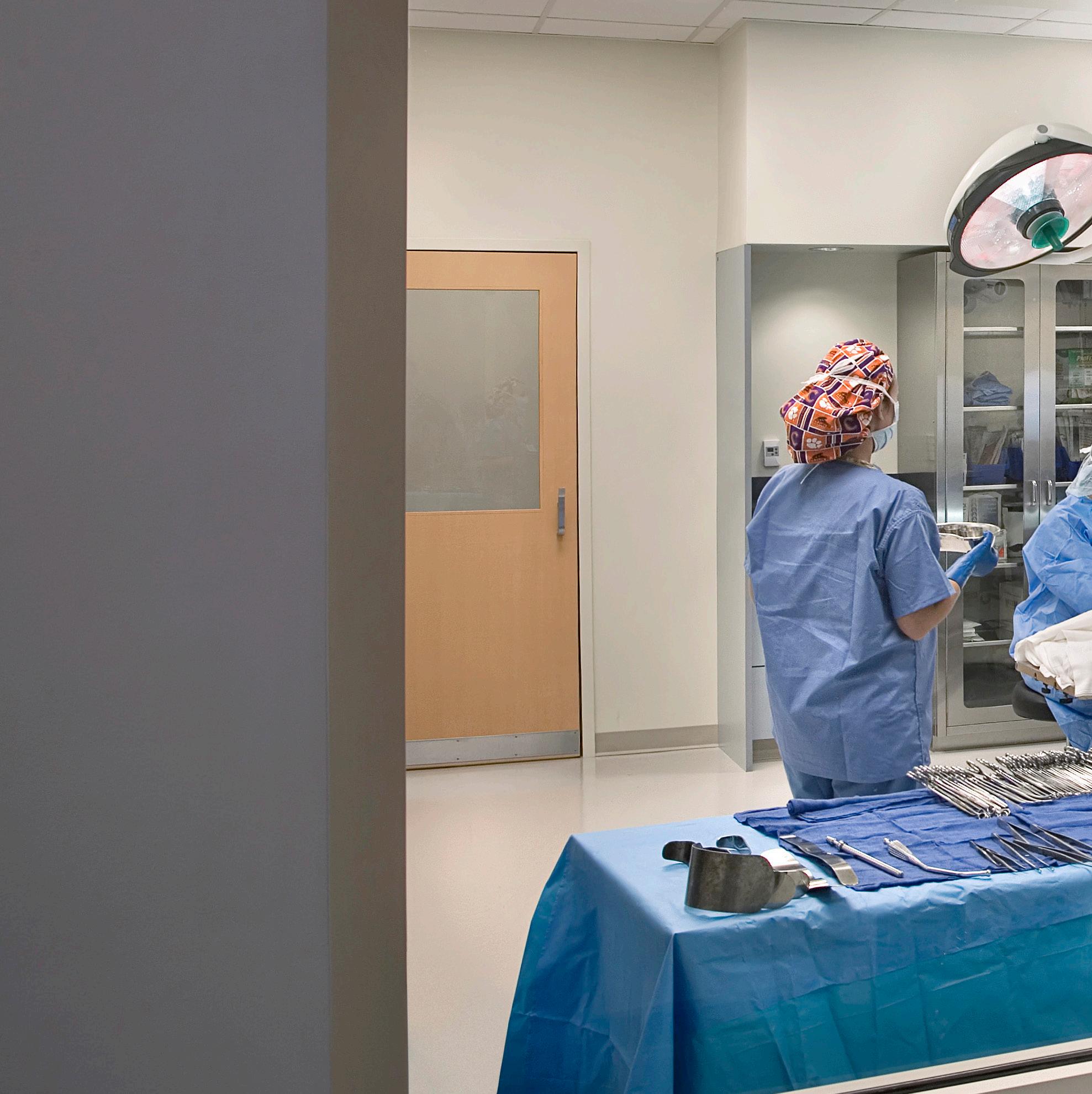
ALLIED HEALTH CAREER TRAINING PROGRAMS RISING DEMAND, GROWING OPPORTUNITIES



ALLIED HEALTH CAREER TRAINING PROGRAMS RISING DEMAND, GROWING OPPORTUNITIES

According to the Bureau of Labor Statistics, jobs in the healthcare profession are anticipated to grow 14% by 2028, creating approximately 1.9 million new jobs and making it the fastest growing industry in the nation.
Meeting this demand will require a pipeline of talent, technical and community colleges across the country are investing in state-of-theart allied health training facilities to prepare the next generation of healthcare professionals.
Growth in the healthcare industry provides an outstanding opportunity for those entering the workforce, and for those retraining for new skills in a shifting economy. Healthcare jobs can offer long-term stability even as other industries falter, and a significant number of these healthcare positions are in allied health fields.
According to the Allied Healthcareer Association, allied health positions represent 60% of the healthcare workforce.
These healthcare professionals are vital to the wellbeing of our communities, and the demand for their specialized skill sets continues to grow.
Our US population is getting older, largely due to the aging of the Baby Boomers, longer lifespans, and a declining birth rate. According to US Census data, by 2034 older adults (65+) will outnumber children (under 18) for the first time in history. People living longer lives require extended healthcare, and will generally need more healthcare services as they age. These trends are fueling an increasing demand for healthcare professionals.
It’s not just the general population growing olderhealthcare professionals are growing older and retiring, too. For example, about a third of the
nursing workforce is expected to retire in the next 10 to 15 years, according to The Atlantic. These aging healthcare professionals will eventually become healthcare patients, just as retiring Boomers will leave staffing shortages and a potential void to fill in the allied health professions.
Community and technical colleges provide a critical path to building the talent pipeline, preparing many allied health professionals for their careers with programs which are more economical and flexible than those at fouryear colleges and universities. Further, through hands-on learning and partnerships with local health systems, community colleges can often link students with potential employers- a win/win for employees and employers alike.
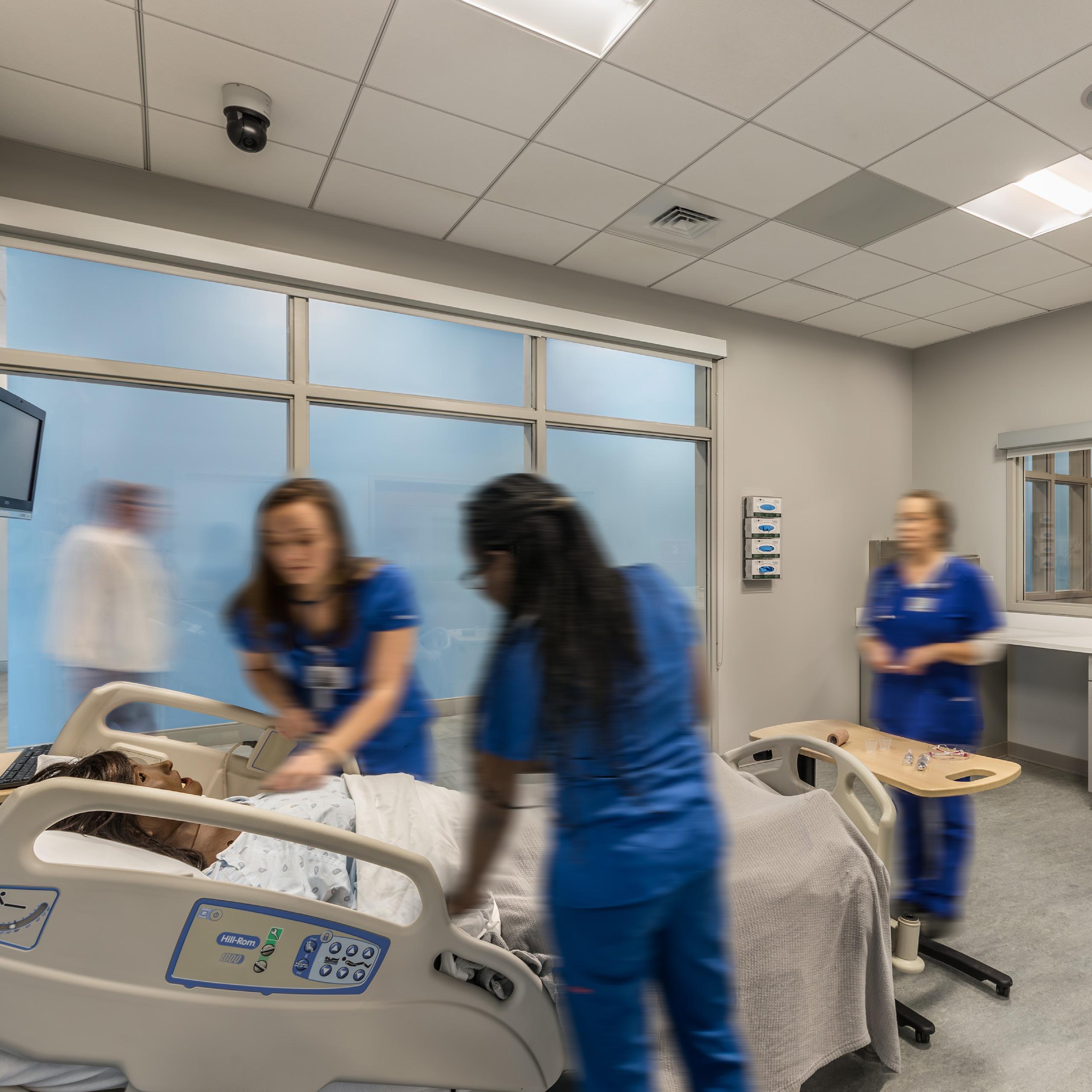
Allied Health Professions Include:
Athletic training
Audiology
Cardiovascular perfusion
technology
Cytotechnology
Dental hygiene
Diagnostic medical sonography
Dietetics
Emergency medical sciences
Health administration
Health information management
Medical technology
Nuclear medicine technology
Occupational therapy
Physical therapy
Physician assistant
Polysomnography
Radiation therapy technology
Radiography
Rehabilitation counseling
Respiratory therapy
Respiratory therapy technology
Speech-language pathology
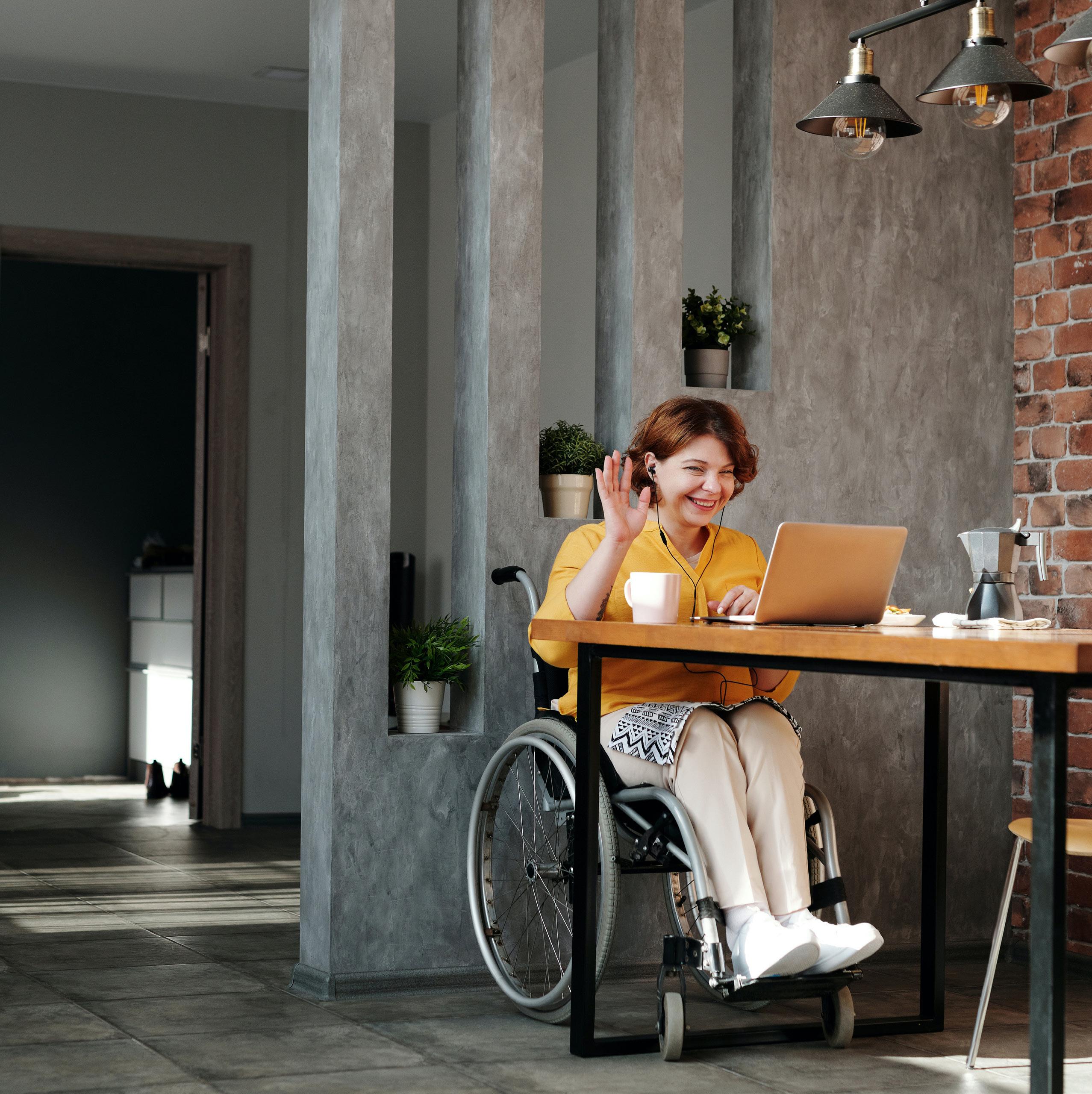
Evolving technologies and new models for healthcare delivery will provide new opportunities for allied healthcare and better community access to care.
The demand for telehealth services was rapidly increasing even before the onset of the COVID-19 crisis. The quick pivot towards safer care models during the pandemic is projected to lead to a long-term increase in telehealth services as providers invest in digital infrastructure and patients become accustomed to the convenience, particularly for non-urgent appointments. Growing access to affordable wearable technology may also help patients and providers monitor health data and share information digitally.
CLICK HERE for more information on this topic from LS3P’s Healthcare Practice.
Drawn by convenience, set pricing, and walk-in options, many healthcare consumers are turning to clinics offered in a big-box or retail setting. These retail clinics may see growing demand, particularly for routine and non-emergent services, and will require trained service providers in a variety of positions.
Digitization of healthcare records is becoming an important component in patient care. Comprehensive, well-maintained records give care providers better access to patient medical histories, resulting in better outcomes for the patient and a more efficient treatment process.
Healthcare professionals provide critical services to our most vulnerable citizens. Meeting the needs of underserved populations requires not only compassion, but also a deep understanding of the issues which often serve as barriers to healthcare access.
The Centers for Disease Control and Prevention (CDC) reports that Americans living in rural areas- roughly 15% of the US population- are more likely to die from a host of diseases than their urban counterparts. Factors contributing to poor health outcomes include long travel distances to hospitals, lower access to health insurance, an older population, higher poverty rates, and higher rates of substance abuse. These populations need better, closer, more affordable access to preventative care and treatment for chronic conditions.
In order to provide effective care to a broad spectrum of patients, healthcare professionals need focused training in diversity and cultural
competency. The National Institutes of Health (NIH) has developed the National Standards for Culturally and Linguistically Appropriate Services in Health and Health Care (CLAS) to educate providers in appropriate strategies for effective and compassionate care, with the goal of reducing disparities in the healthcare system.
Mental heath care is integral to treating the whole patient, and models which integrate behavioral health services with primary care can lead to better outcomes than treating conditions in isolation. Sometimes called “integrated care” or “collaborative care,” this coordinated care model can lead to better outcomes for the patient for both physical and mental health.

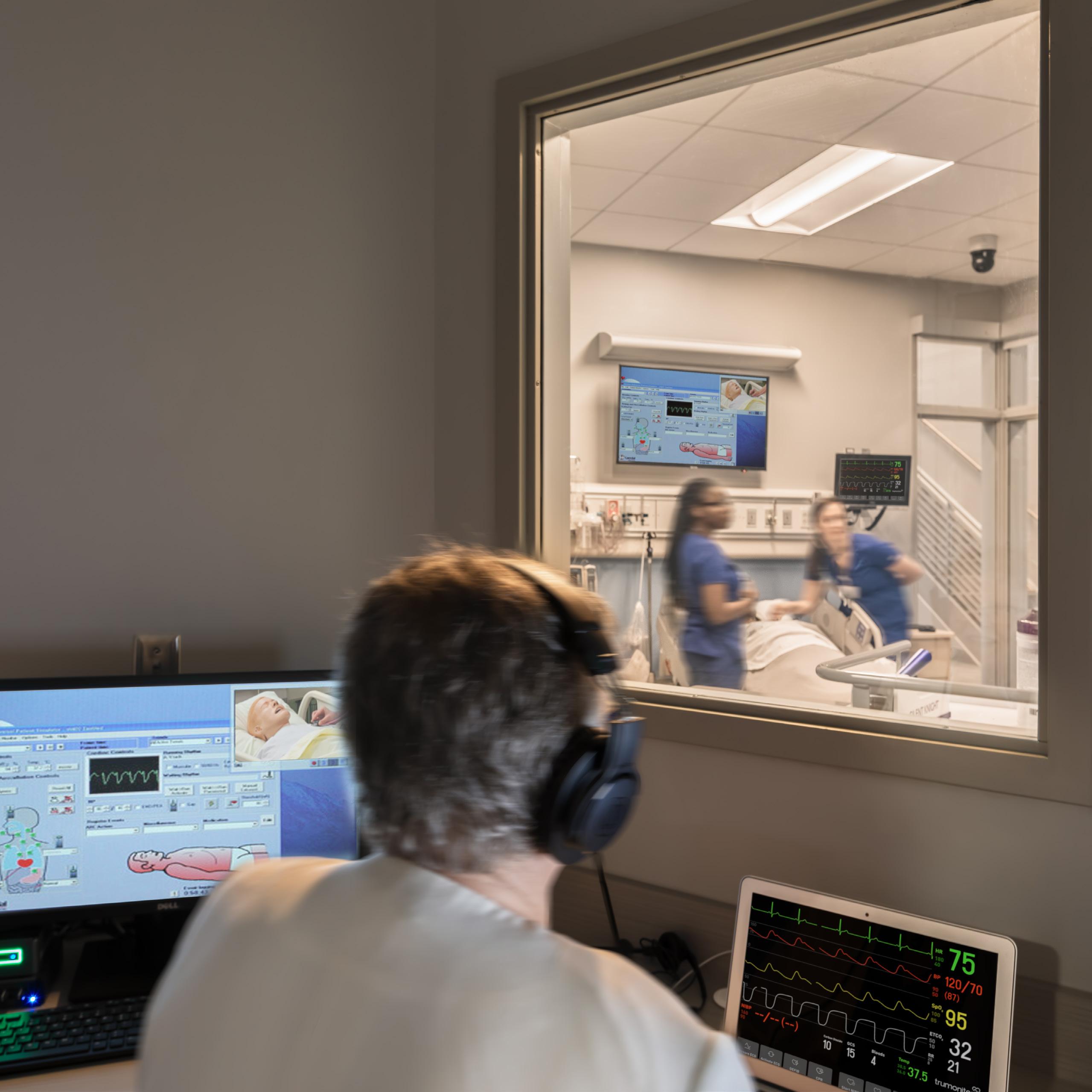
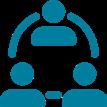
Healthcare professionals rarely work in isolation, and their training should reflect the interdisciplinary nature of the work. Increasingly, instead of being siloed by department, students are participating in interprofessional simulations which encompass everything from patient transport to triage to treatment. Sharing spaces and working collaboratively with a variety of future healthcare professionals, students gain more authentic experience across the continuum of care.

The healthcare industry continues to evolve along with new technologies and new modalities of care. Established professionals need opportunities for continuing education, retraining, and ongoing certifications, and community and technical colleges can be instrumental in providing those services to care providers.
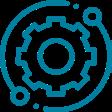
Allied health programs must be flexible and adaptable to accommodate changes in equipment, curricula, and teaching methods. Access to digital resources, virtual- and augmented-reality simulation models, and clinical equipment in the academic setting is increasing rapidly, while the COVID-19 pandemic pushed trends toward blended learning models to new levels of student and faculty acceptance.

Students in the allied health professions are committed, passionate, and hardworking, and their academic programs are extremely demanding. The students spend long hours on campus, and they need welcoming study spaces, after-hours access to their labs, and spaces for gathering and recharging that feel like home.
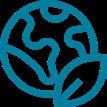
Research shows that integrated sustainable design strategies can increase occupant wellness through better indoor air quality, access to natural daylight and views, improved acoustics, and use of non-toxic materials. These measures can increase attendance for students, faculty, and staff and increase learning outcomes.
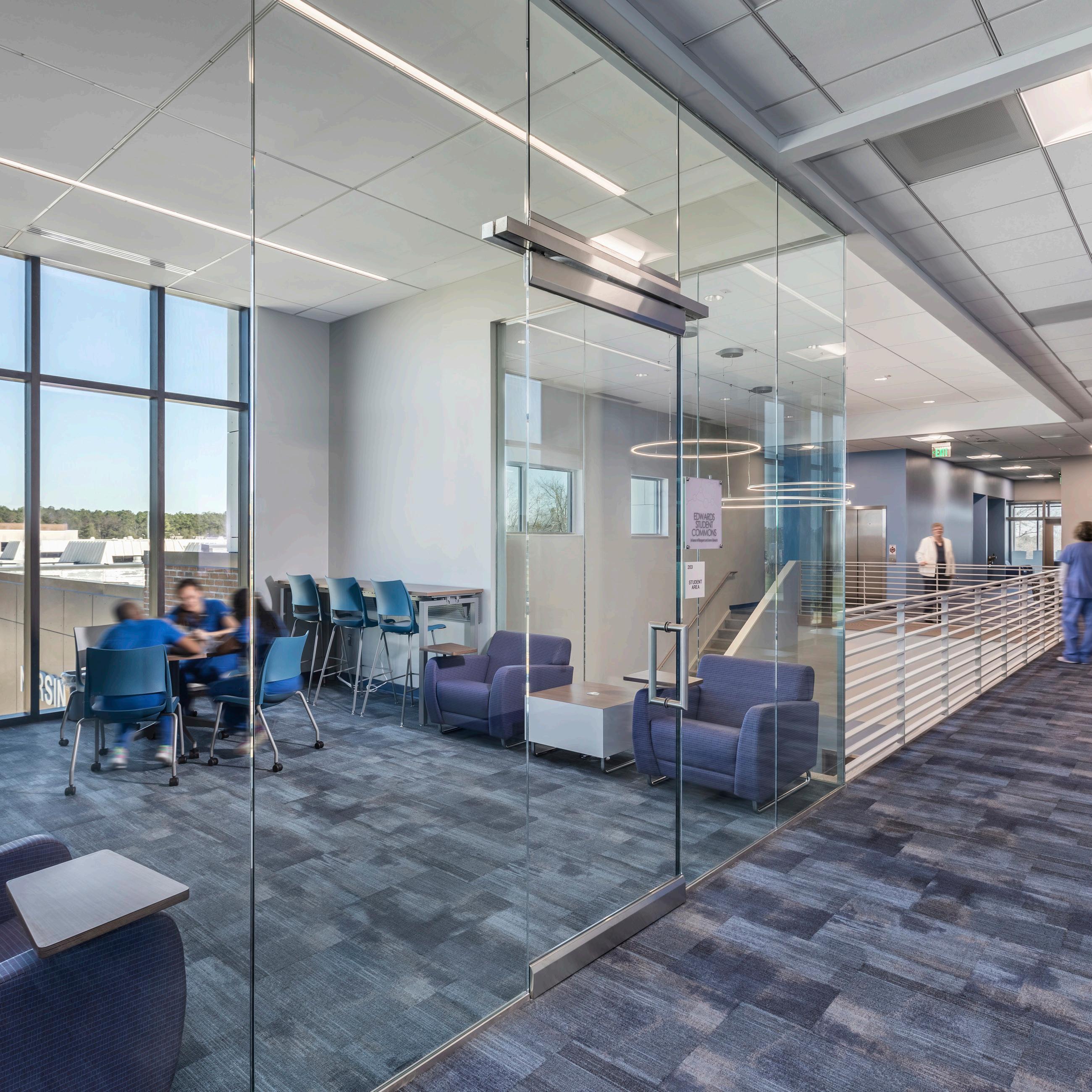
ORANGEBURG-CALHOUN TECHNICAL COLLEGE
ORANGEBURG, SC | 32,700 GSF | NEW CONSTRUCTION
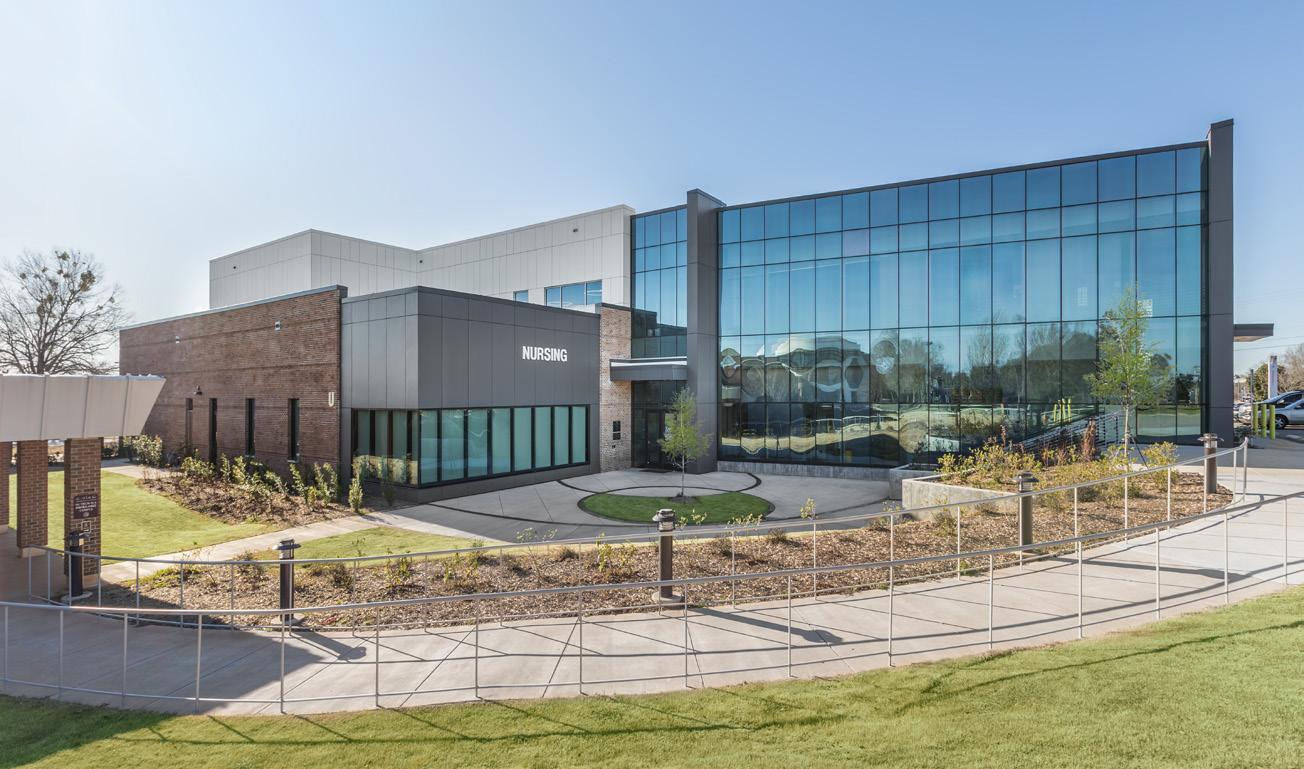
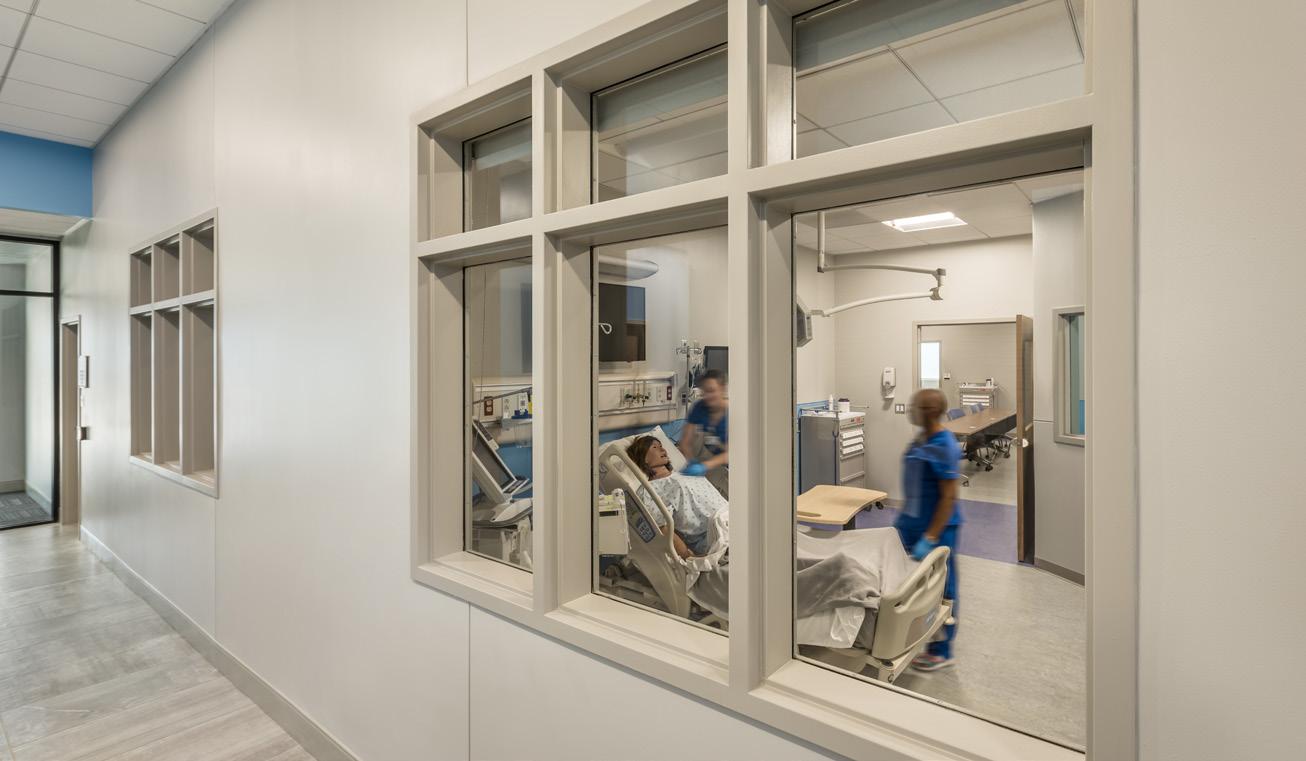
PROGRAMS SERVED
Medical Assisting
Nursing
Patient Care Technology
UNIQUE FEATURES
Dividable, Tiered Auditorium
Health Sciences Student Commons
Patient Care Simulation Suite
Skills Lab




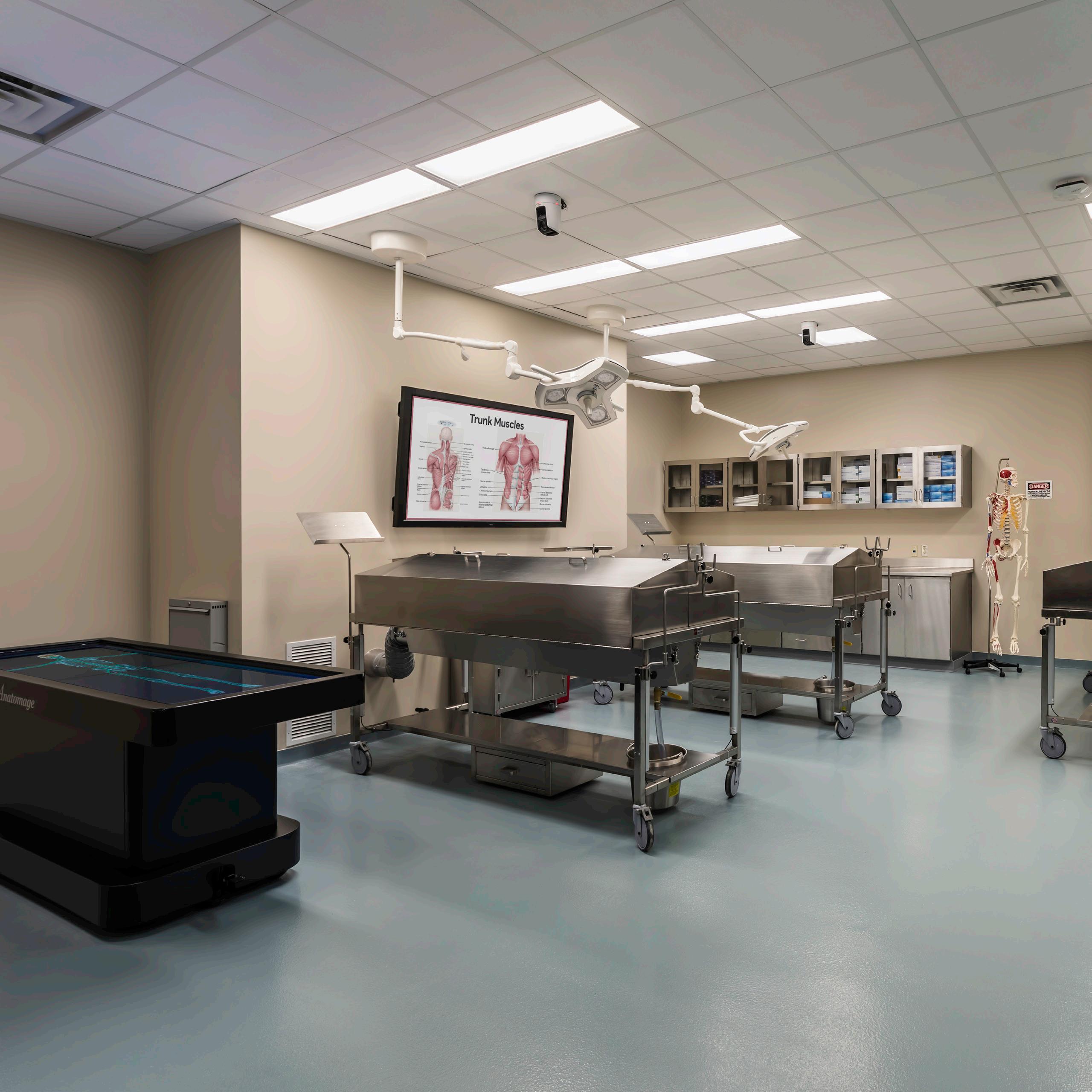
APPALACHIAN STATE UNIVERSITY
BOONE, NC | 202,916 GSF | NEW CONSTRUCTION
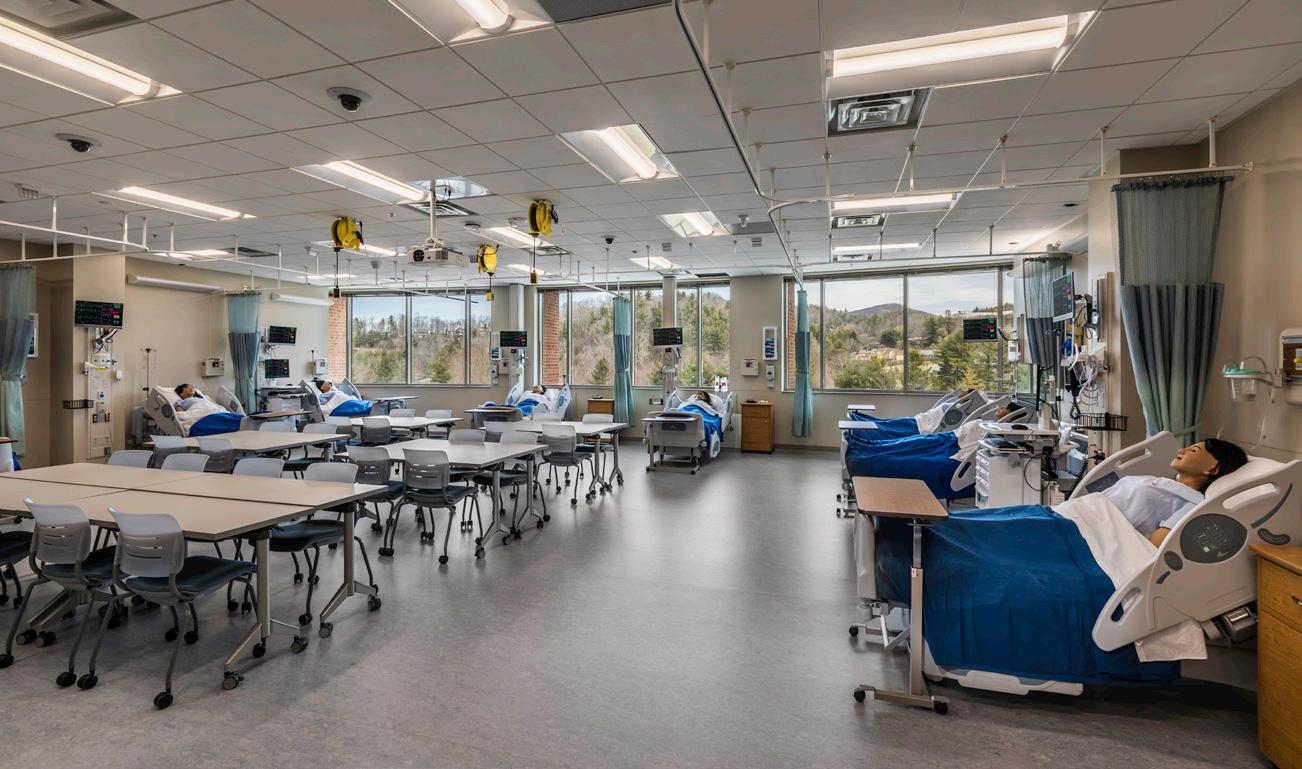
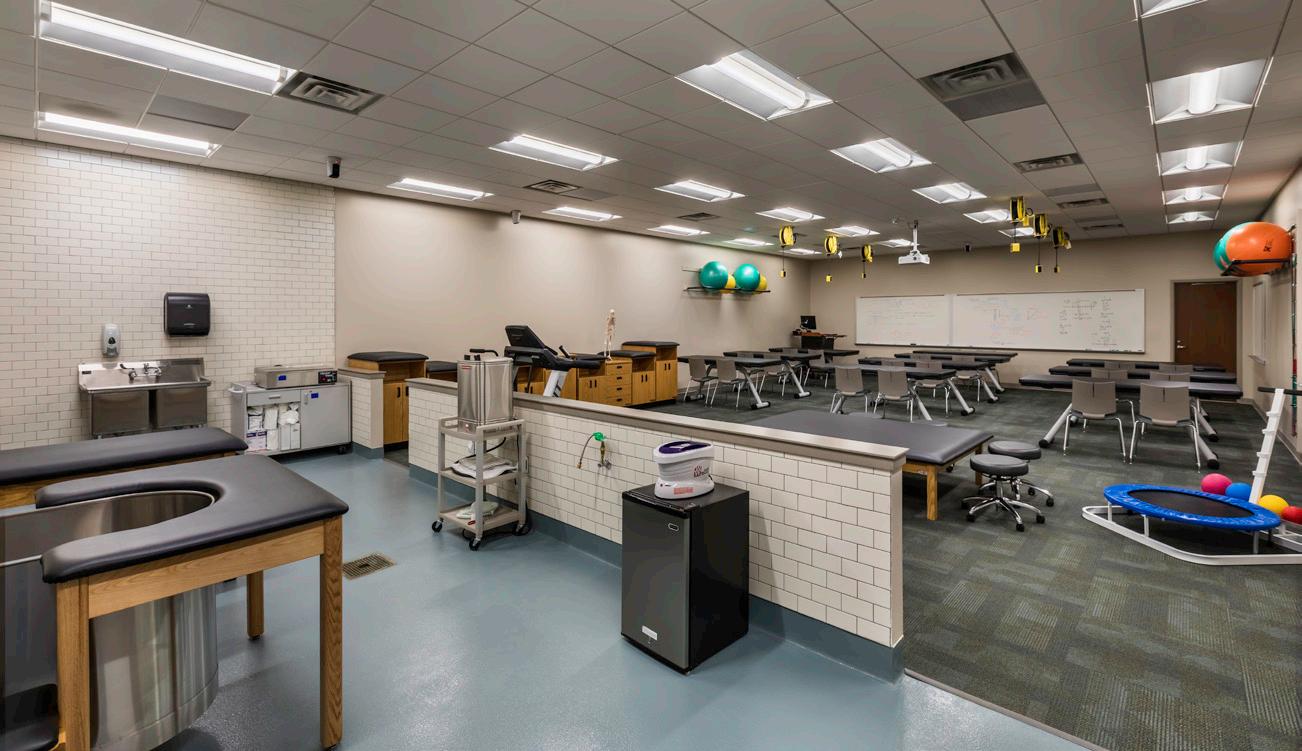
PROGRAMS SERVED
Anatomy and Physiology
Athletic Training
Biomechanics
Body Composition
Human Performance
Nutrition
Physical Therapy
Sports Psychology
UNIQUE FEATURES
Athletic Training Lab
Audiology Clinic
Biomechanics & Neuromuscular Labs
Cadaver Lab
Community Clinic
Health Promotions Labs
Human Performance Research Labs
Nutritional Foods Science Lab
Commercial Kitchen
Occupational Therapy Lab





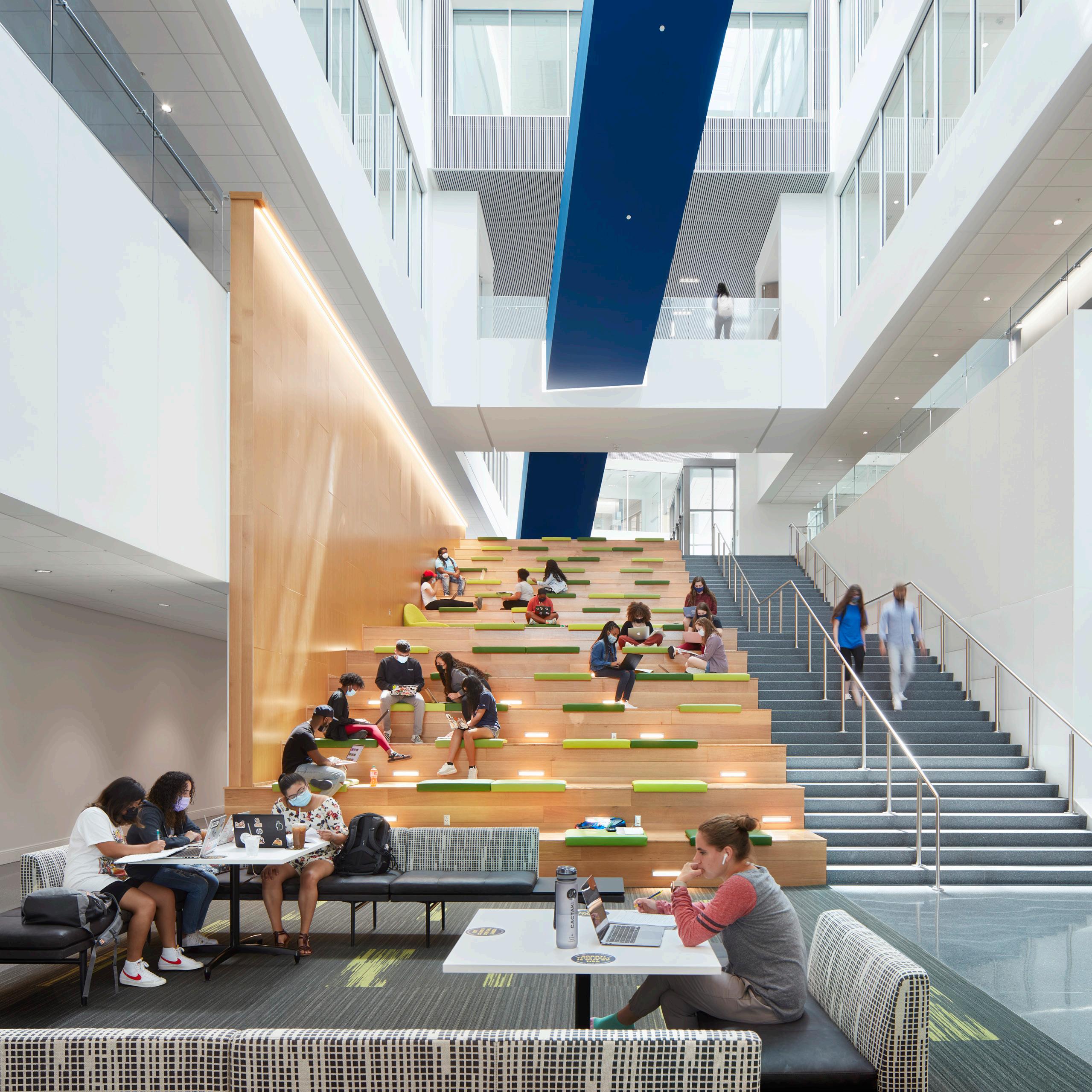
UNIVERSITY OF NORTH CAROLINA AT GREENSBORO
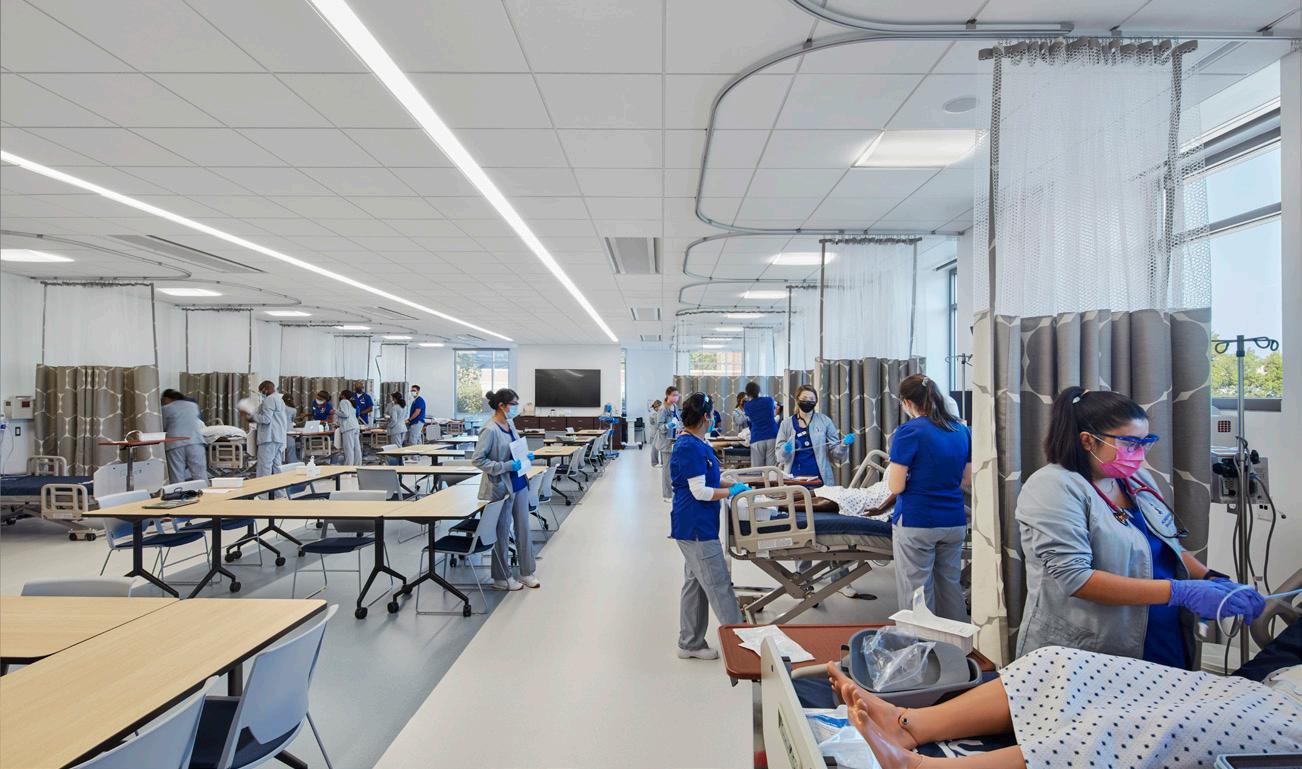
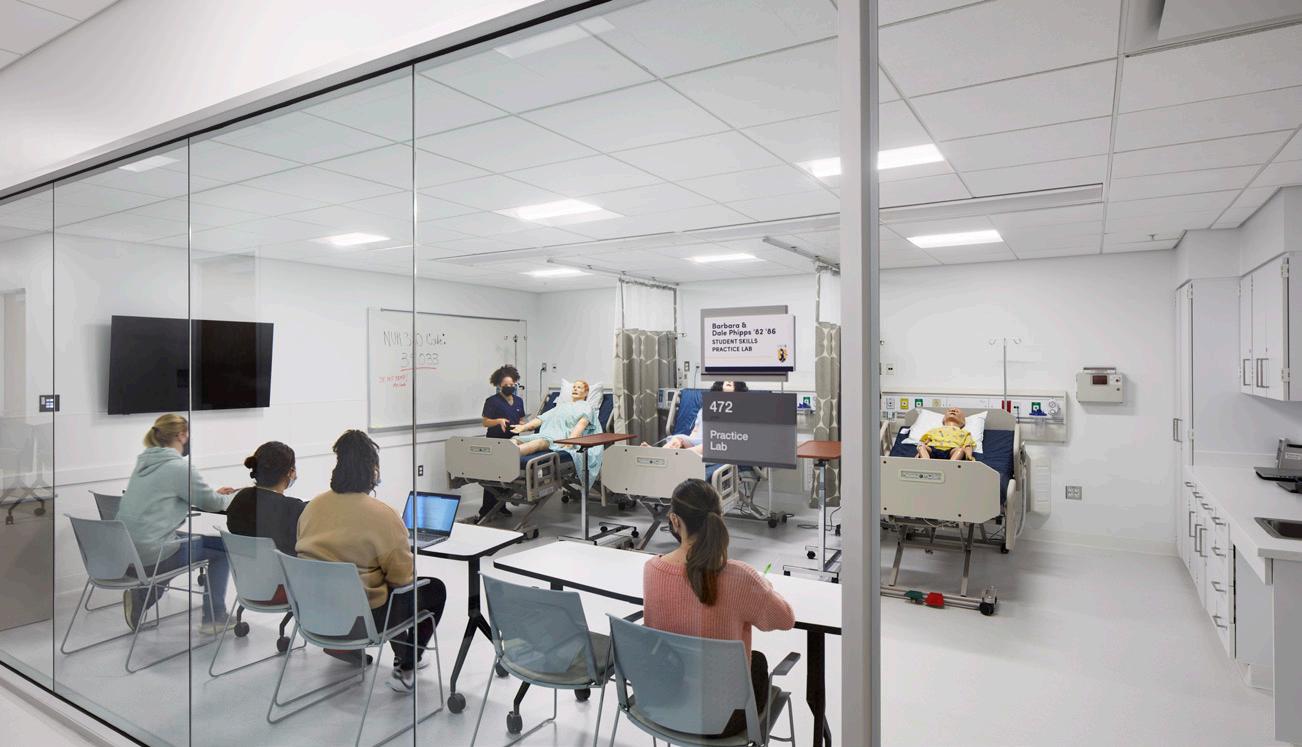
PROGRAMS SERVED
Biology
Chemistry
Health and Human Sciences
Nursing
UNIQUE FEATURES
Anatomage Lab
Anatomy Labs
Biology Labs
Chemistry Labs
Community Engagement Center and Clinic
Kinesiology Labs
Microbiology Labs
NMR Spectroscopy Suite
Nursing Research Center and Labs
Patient Simulation Suites
Physiology Labs
Associate Architect: SmithGroup





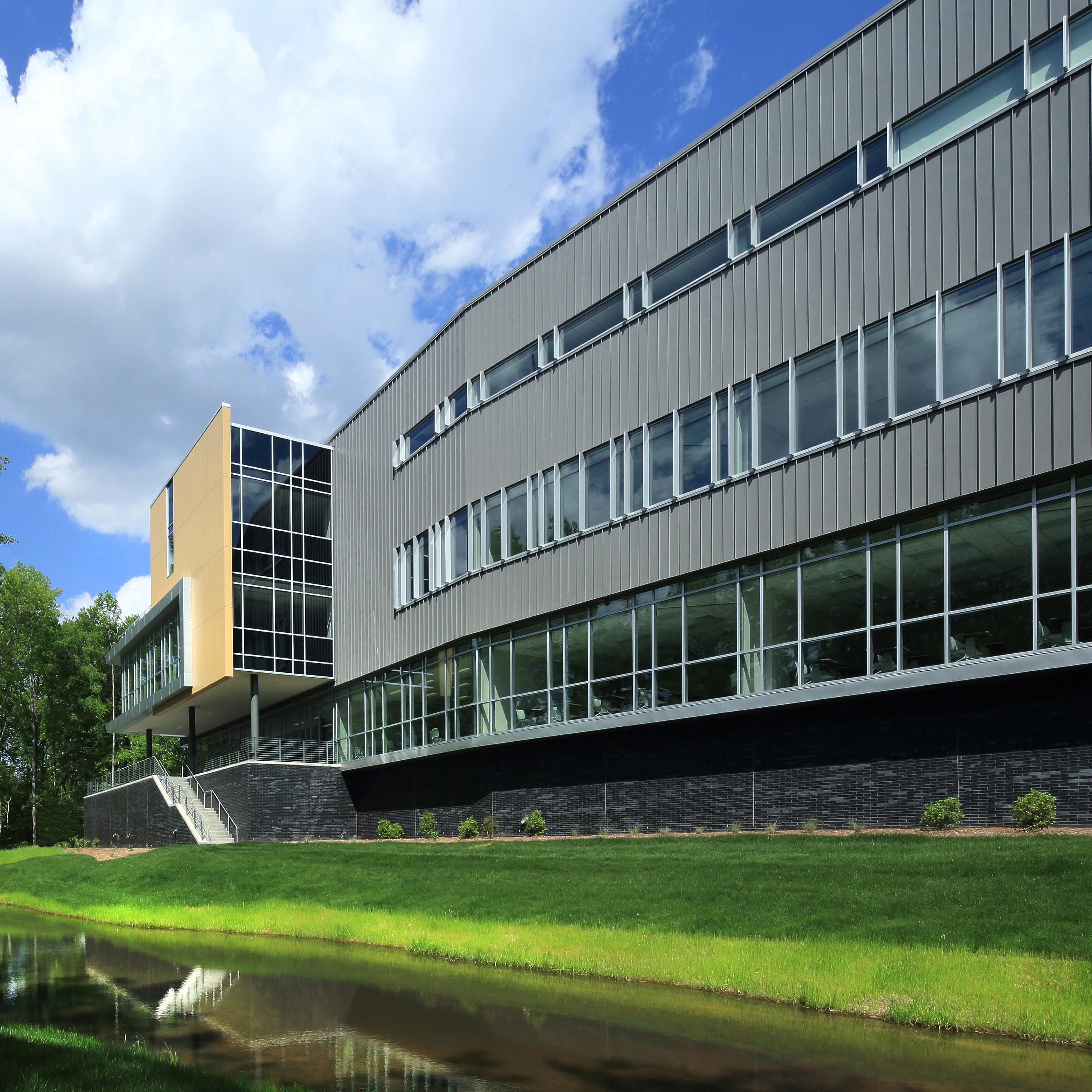
WAKE TECHNICAL COMMUNITY COLLEGE
RALEIGH, NC | 62,000 GSF | NEW CONSTRUCTION
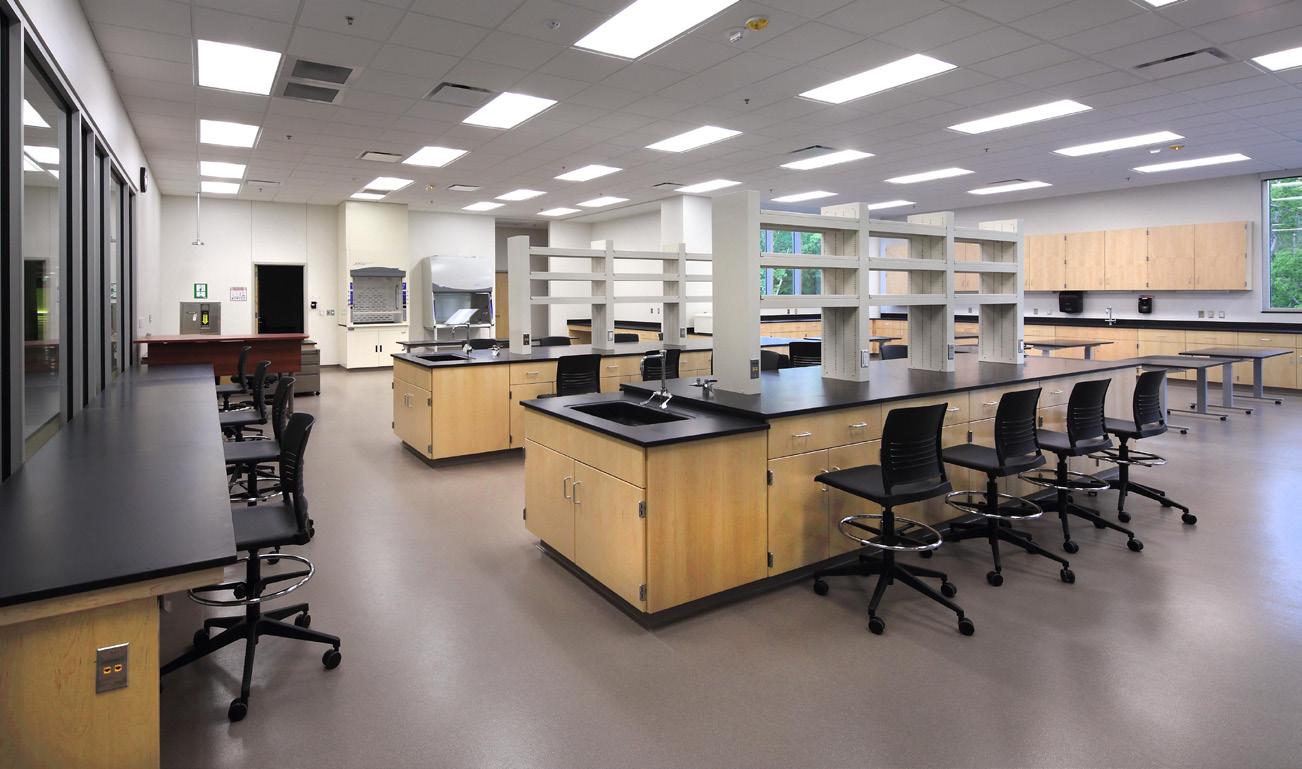
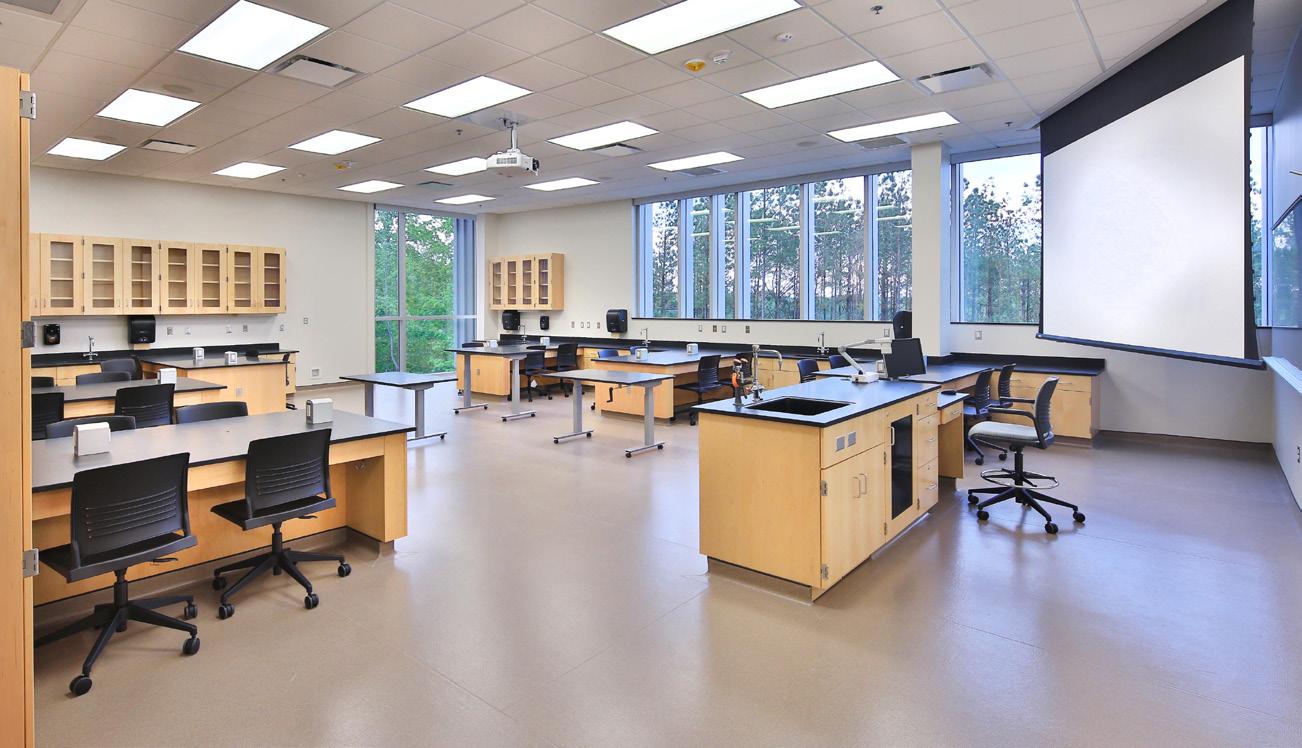
PROGRAMS SERVED
Biology
Health Sciences
Engineering
Life Sciences
UNIQUE FEATURES
Anatomy and Physiology Labs
Biology Labs
Faculty Resource Center
Interdisciplinary STEM Lab
Microbiology Labs




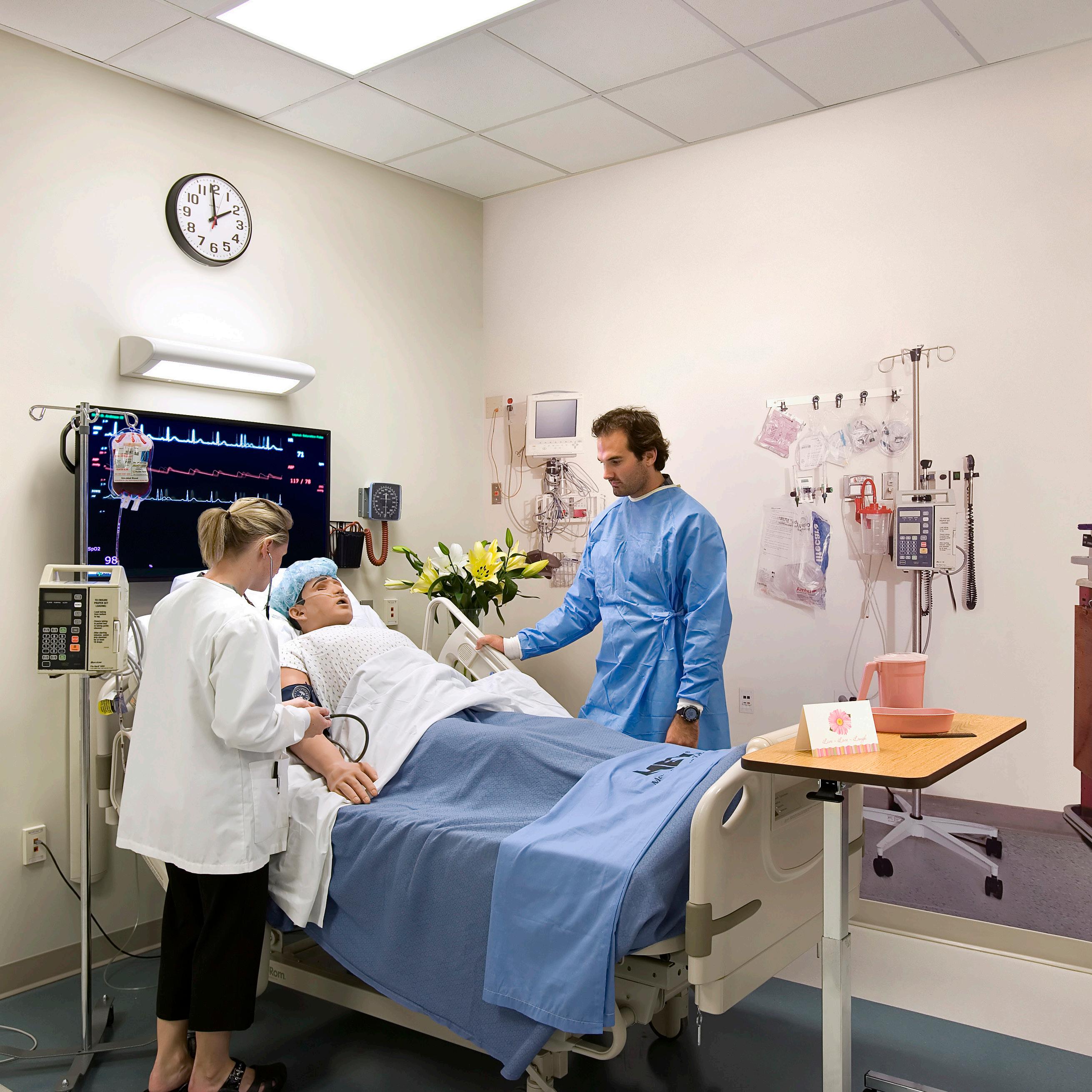
CENTRAL CAROLINA TECHNICAL COLLEGE
SUMTER, SC | 69,000 GSF | ADAPTIVE REUSE
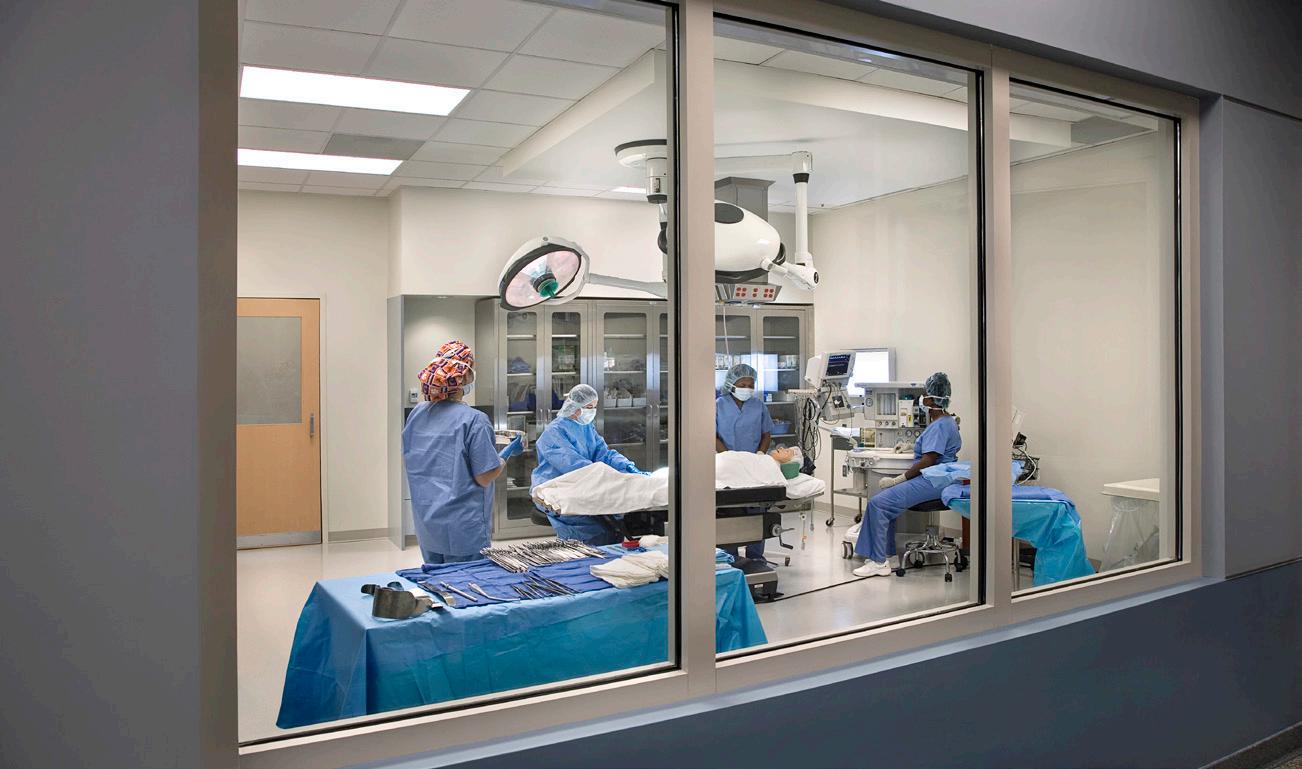
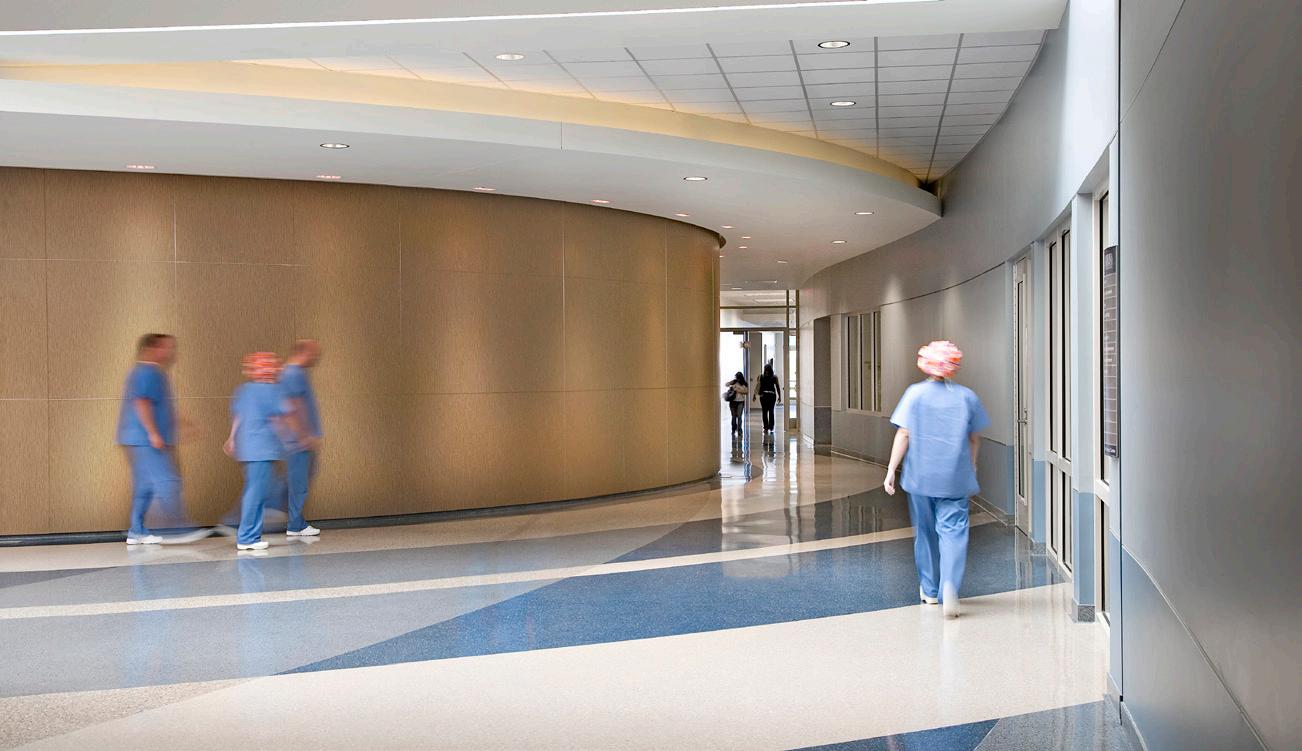
PROGRAMS SERVED
Massage Therapy
Medical Assisting and Office
Administration
Nursing
Phlebotomy
Surgical Technology
UNIQUE FEATURES
Patient Simulation Lab
Skills Lab
Surgical Simulation Lab





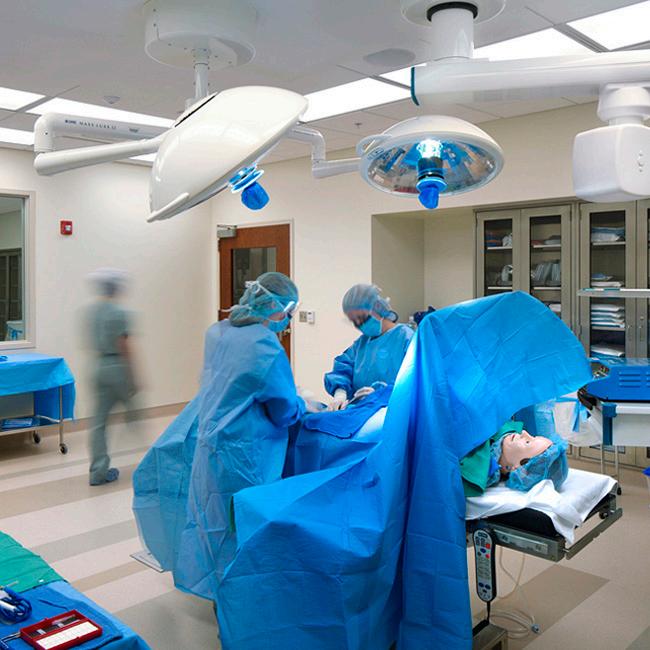
WILMINGTON, NC | 250,000 GSF | NEW CONSTRUCTION
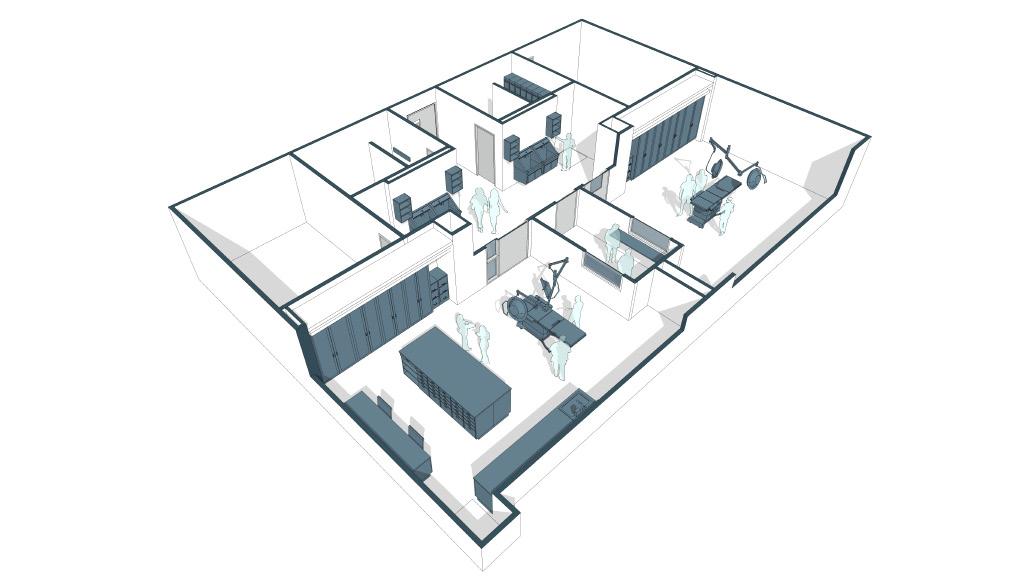
SURGICAL TECH LAB
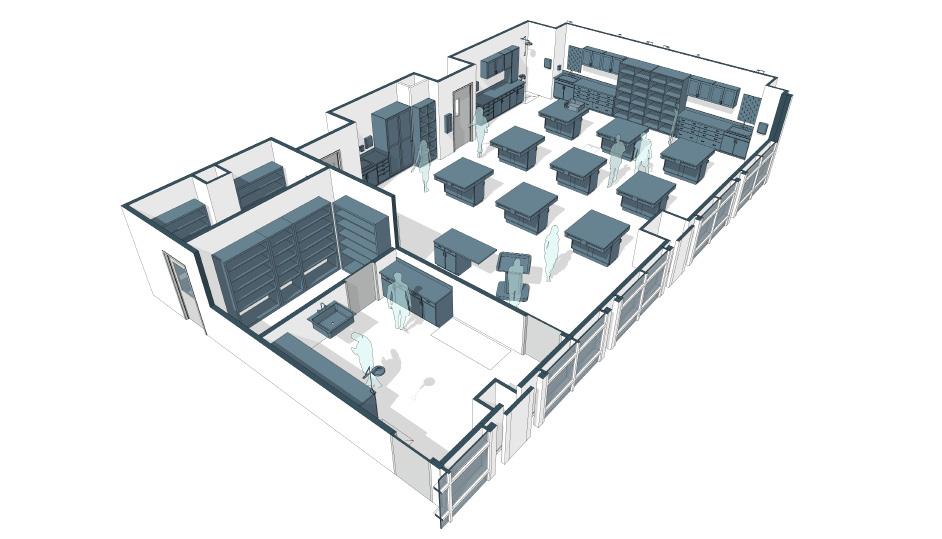
BIOLOGY LAB
PROGRAMS SERVED
Biology
Chemistry
Nursing
Surgical Technician
UNIQUE FEATURES
Auditorium
Biology Labs
Boardroom
Café
Chemistry Labs
Historic Preservation Award
Microbiology Labs
Multipurpose Room
Skills Labs
Student Services Suites
Surgical Tech Labs




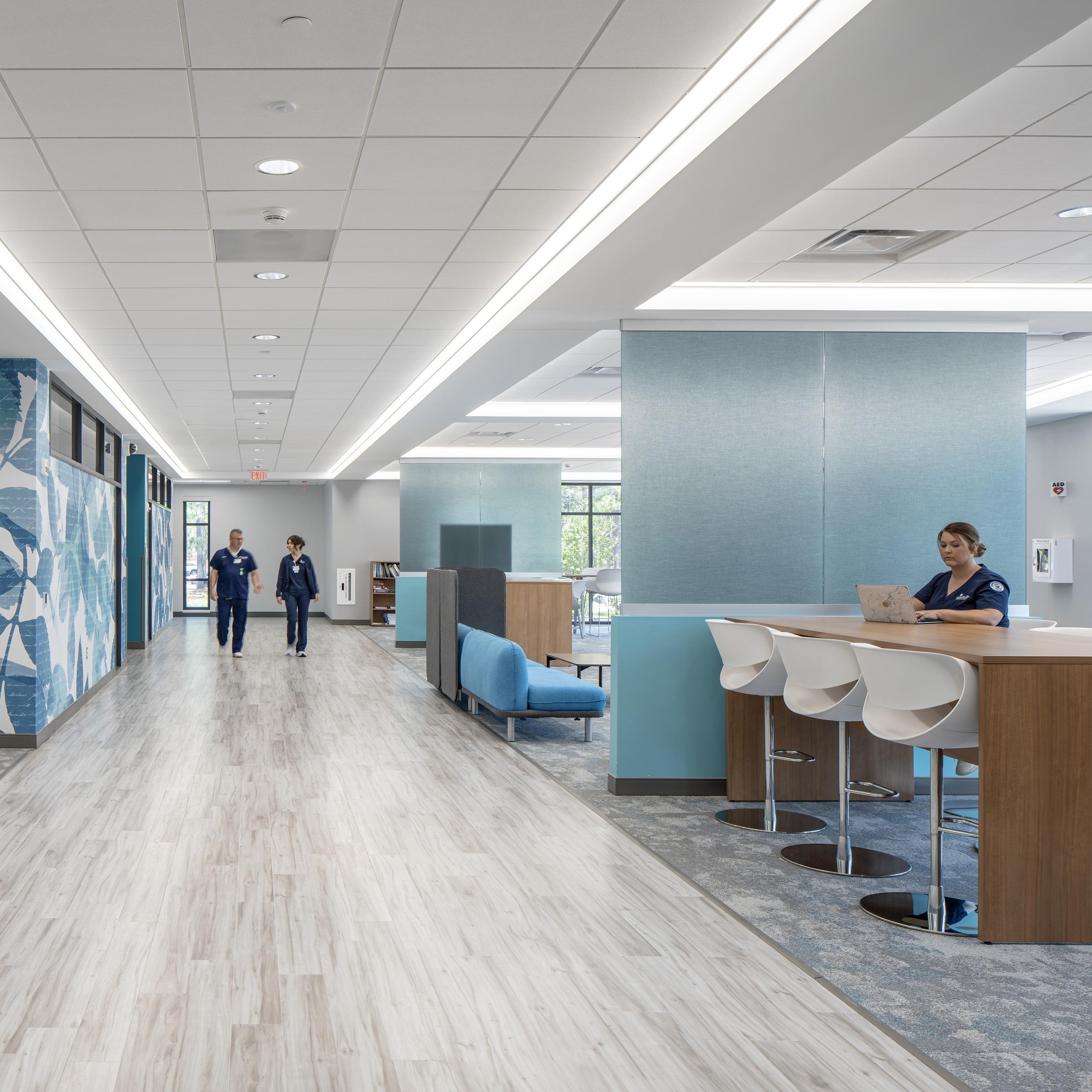
PINEHURST, NC | 36,000 GSF NEW CONSTRUCTION | 36,000 GSF RENOVATION
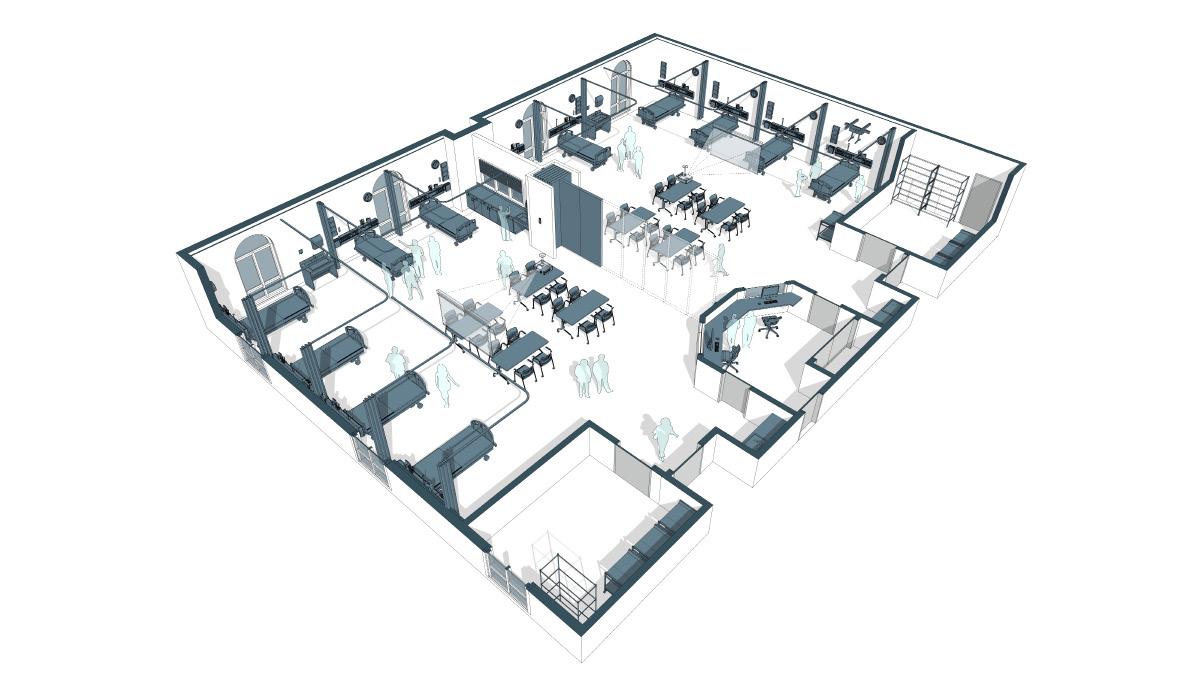

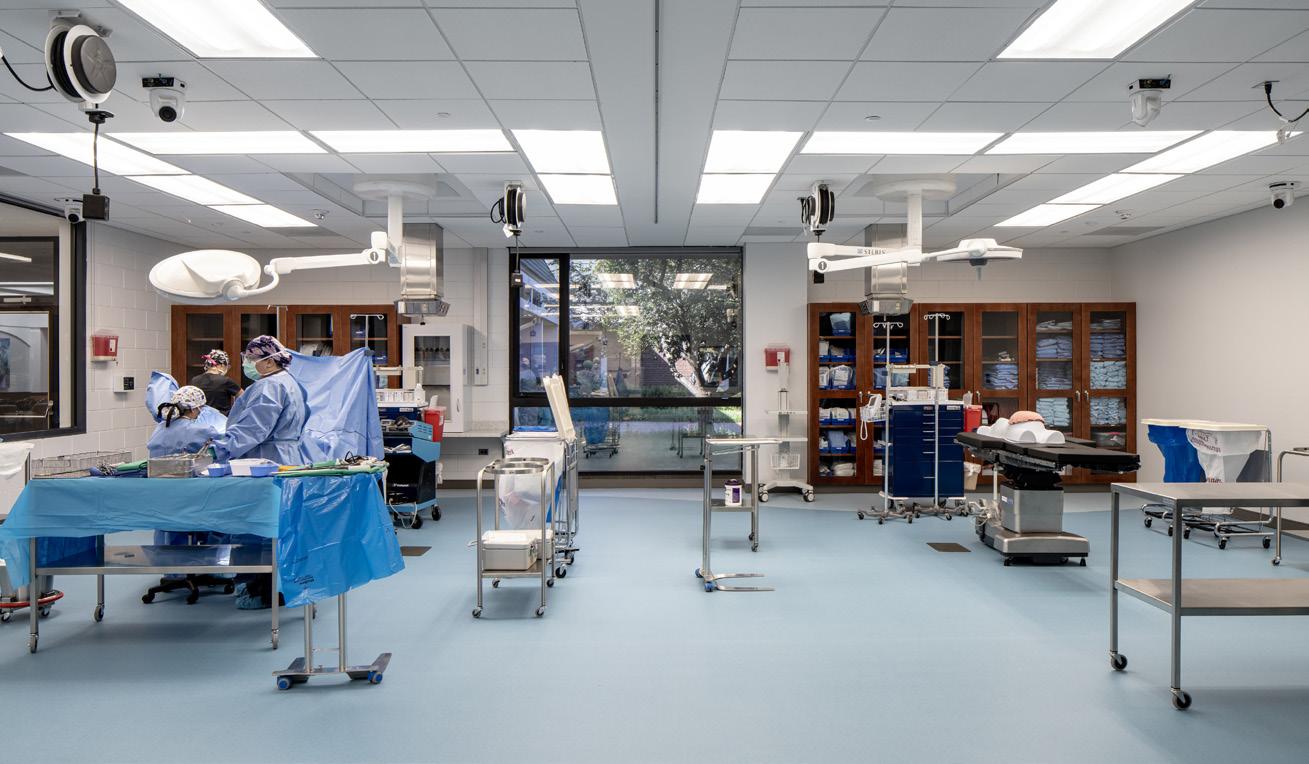
PROGRAMS SERVED
EMS
Medical Technology
Nursing
Ophthalmology
Phlebotomy
Respiratory Therapy
Surgical Technology
UNIQUE FEATURES
Instrument Processing Lab
Medical Technology Lab
Patient Simulation Suite
Radiography Labs
Skills Labs
Student Commons
Surgical Tech Lab




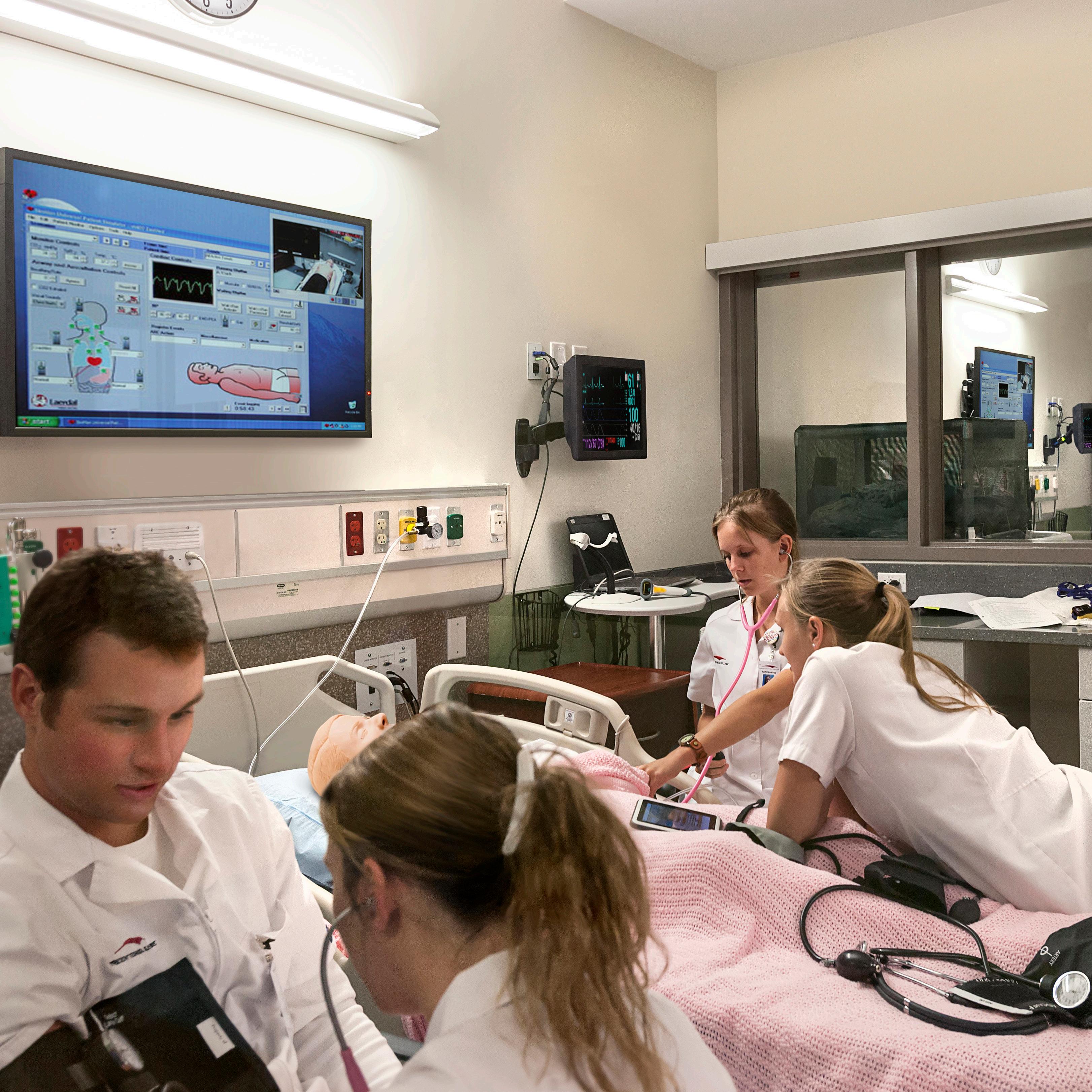
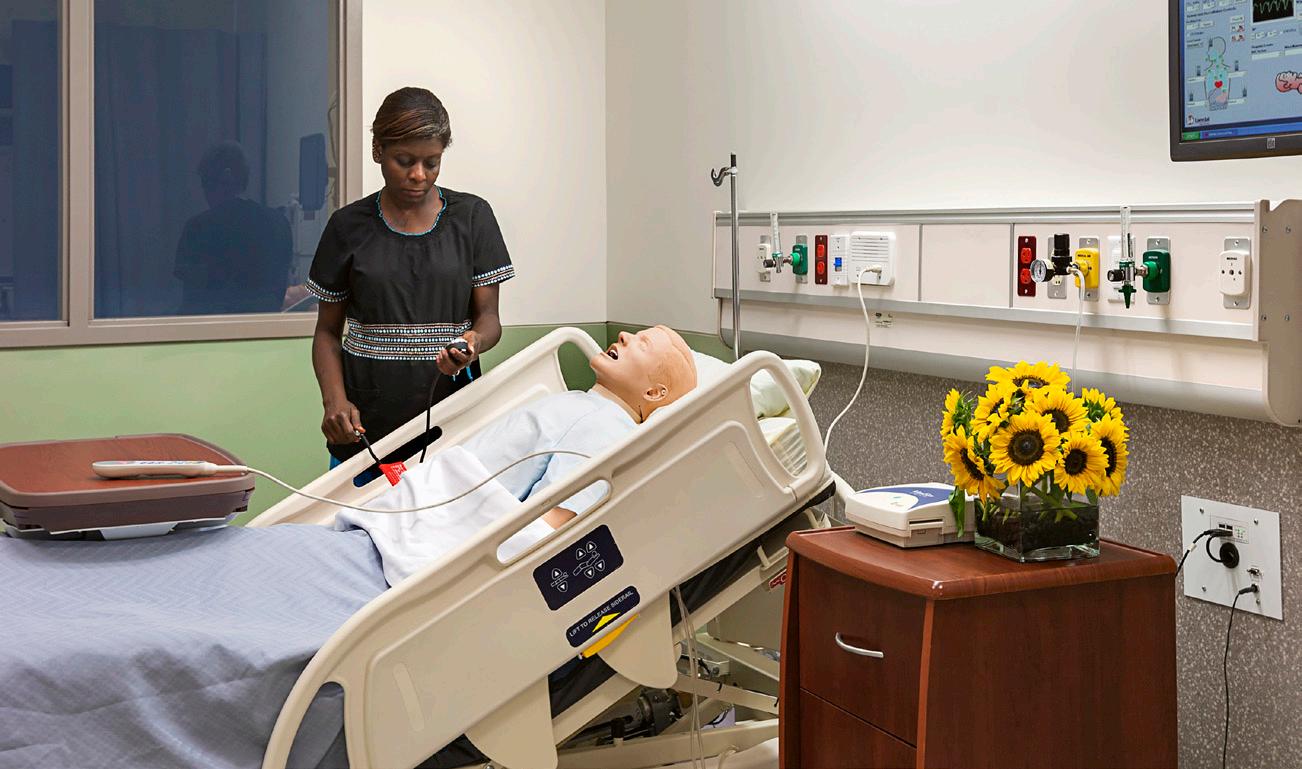
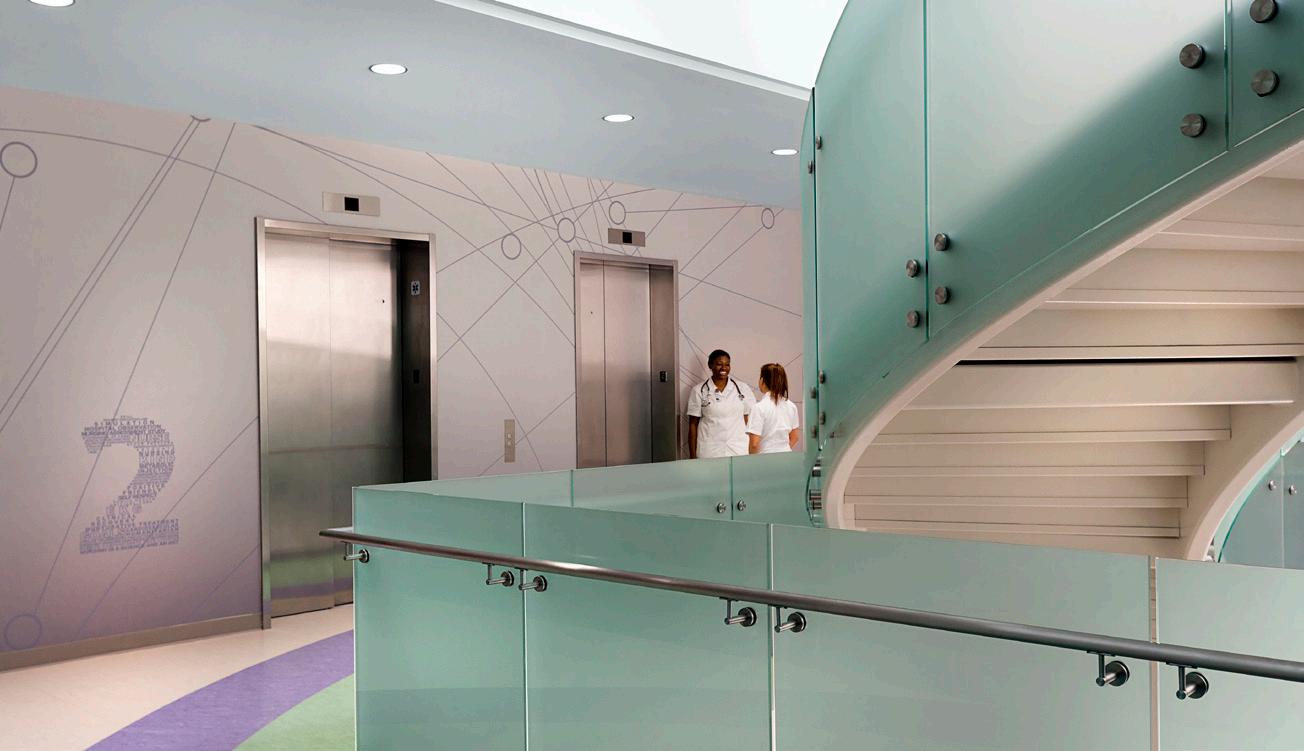
PROGRAMS SERVED
Health Sciences
Nursing
UNIQUE FEATURES
Anatomy and Physiology Labs
Microbiology Lab
Patient Simulation Labs
Procedures Lab
Skills Labs
Student Lounge





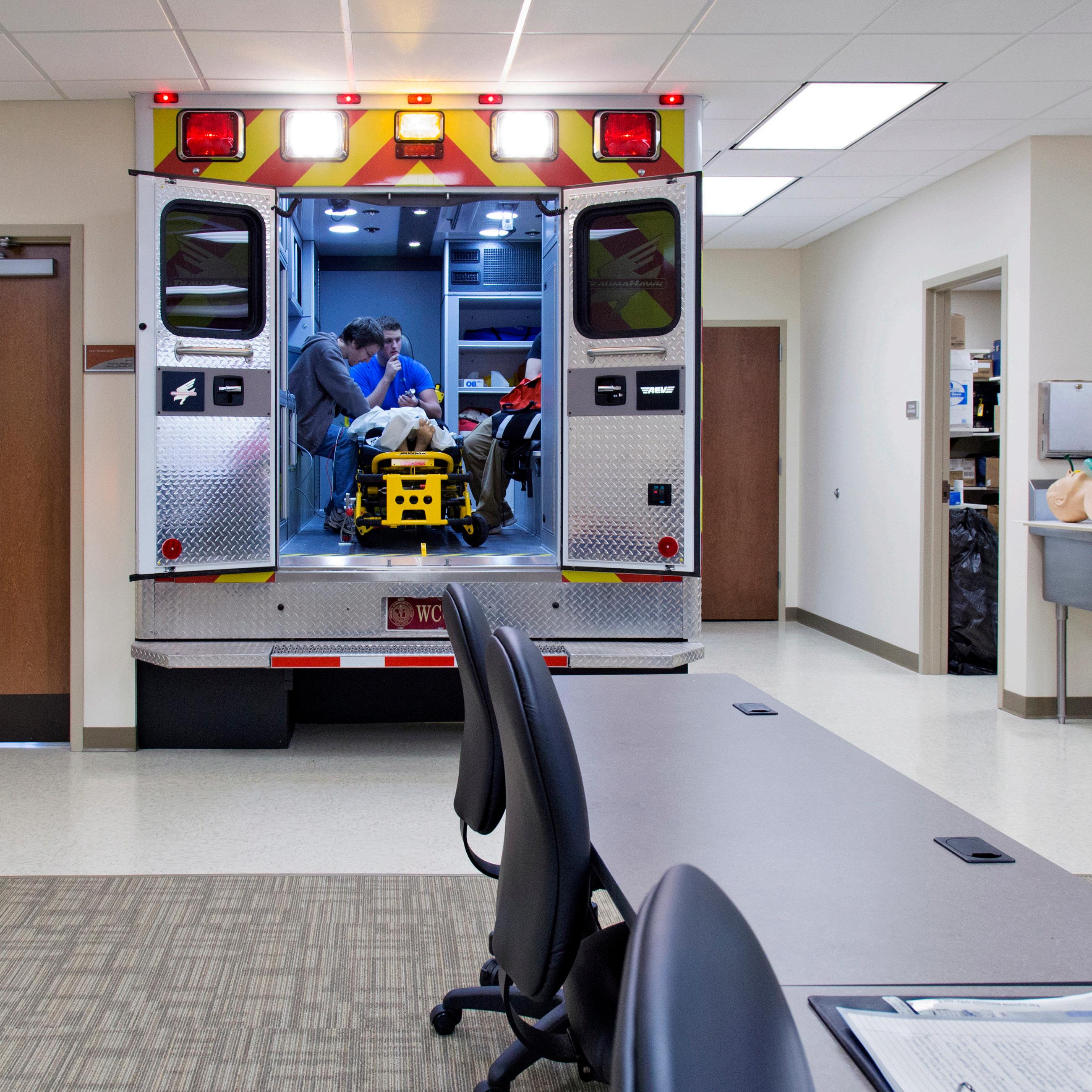
WILKES COMMUNITY COLLEGE
WILKESBORO, NC | 59,000 GSF | ADAPTIVE REUSE
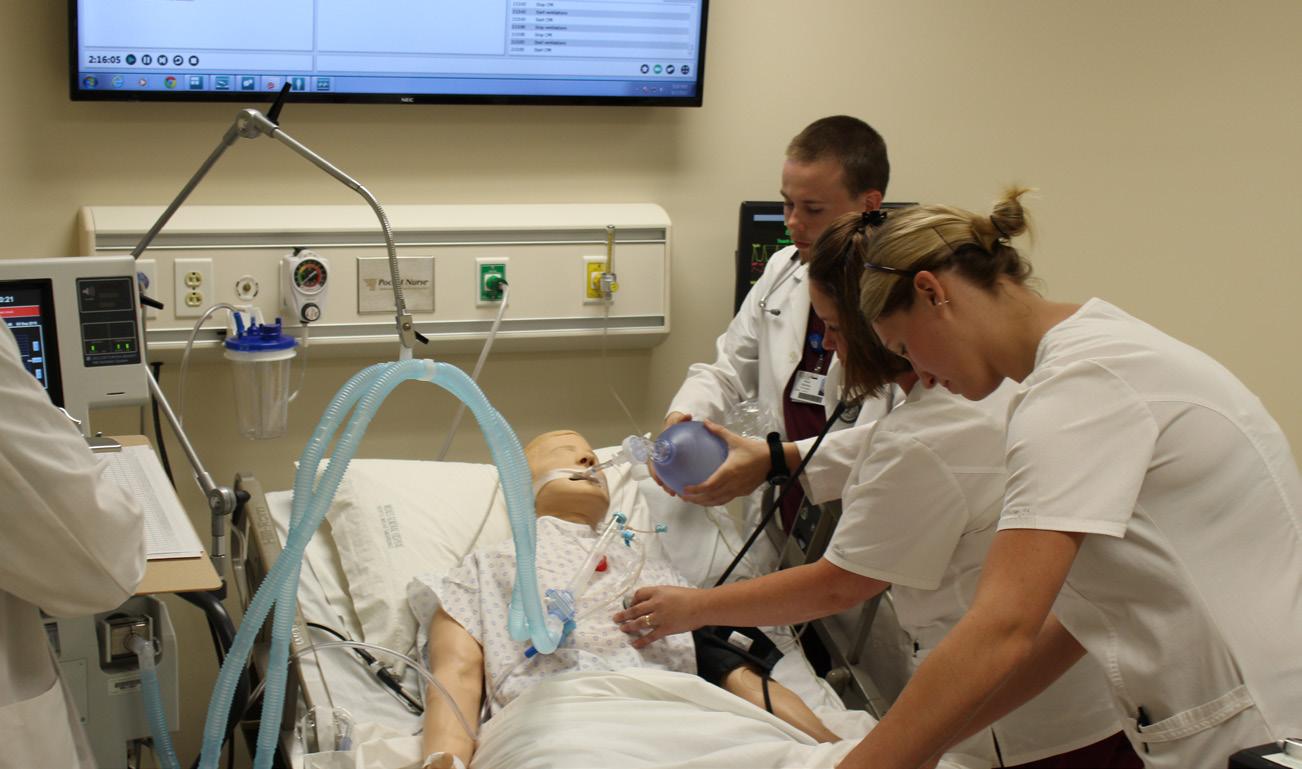
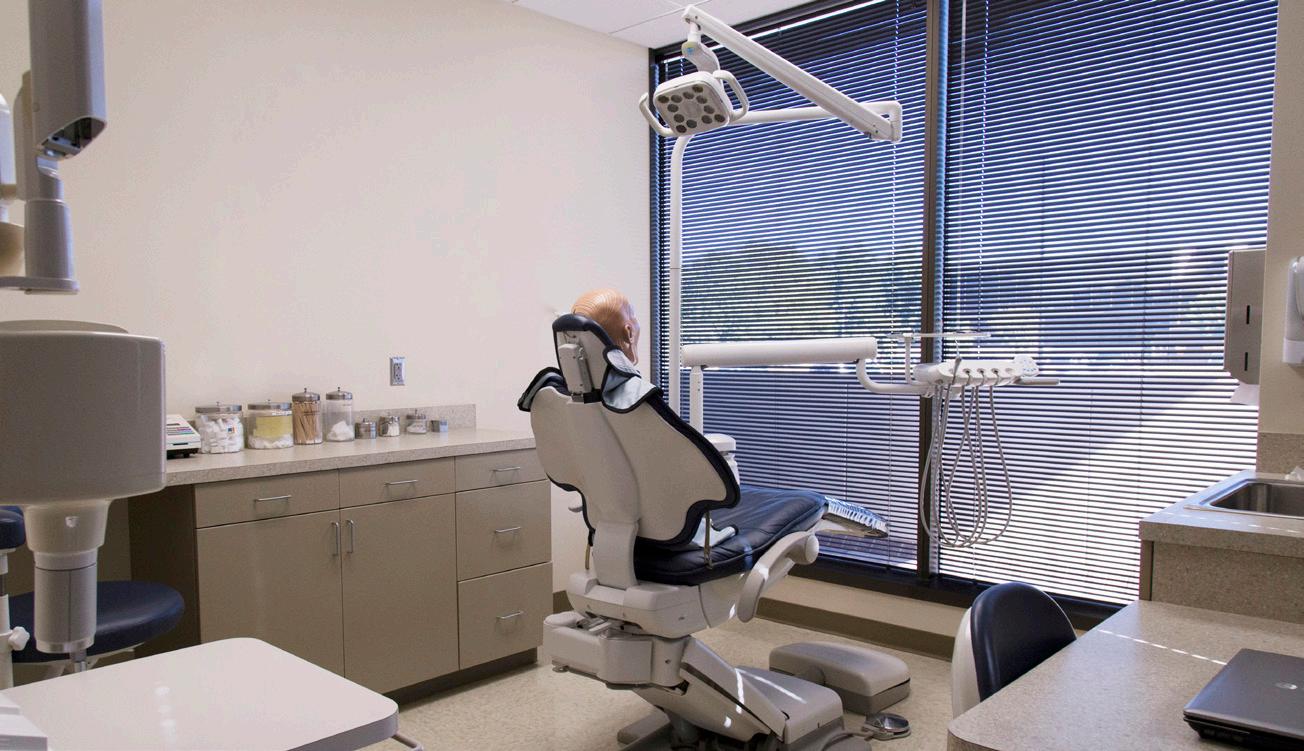
PROGRAMS SERVED
Dental Assisting and Hygienist
Medical Assisting
Nursing
Phlebotomy
Radiology
Respiratory Therapy
UNIQUE FEATURES
Dental Clinic
Dental Lab
EMS Simulator
Patient Simulation Suite
Phlebotomy Lab
Radiology Lab
Skills Labs



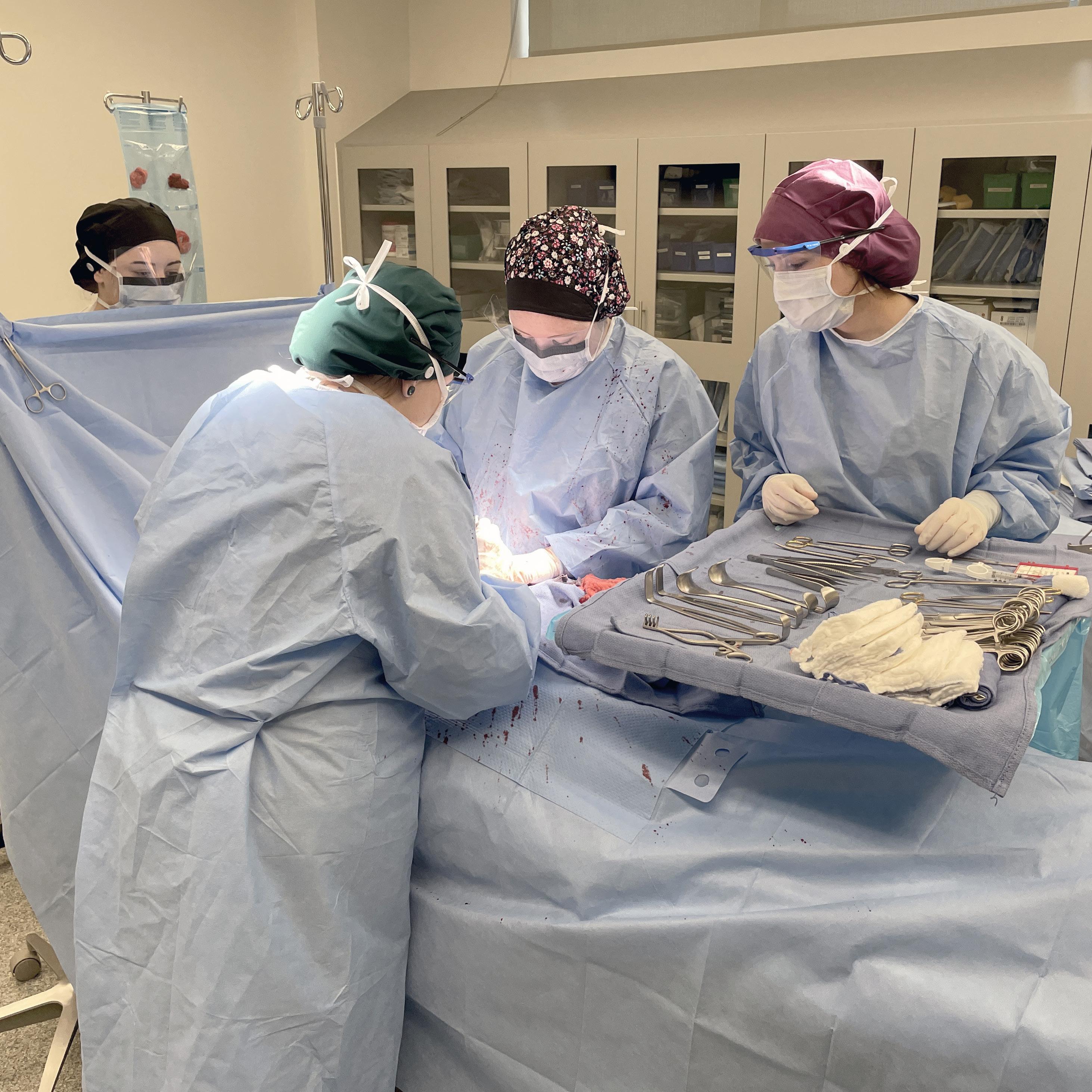
SOUTHWESTERN COMMUNITY COLLEGE
SYLVA, NC | 55,000 GSF | NEW CONSTRUCTION
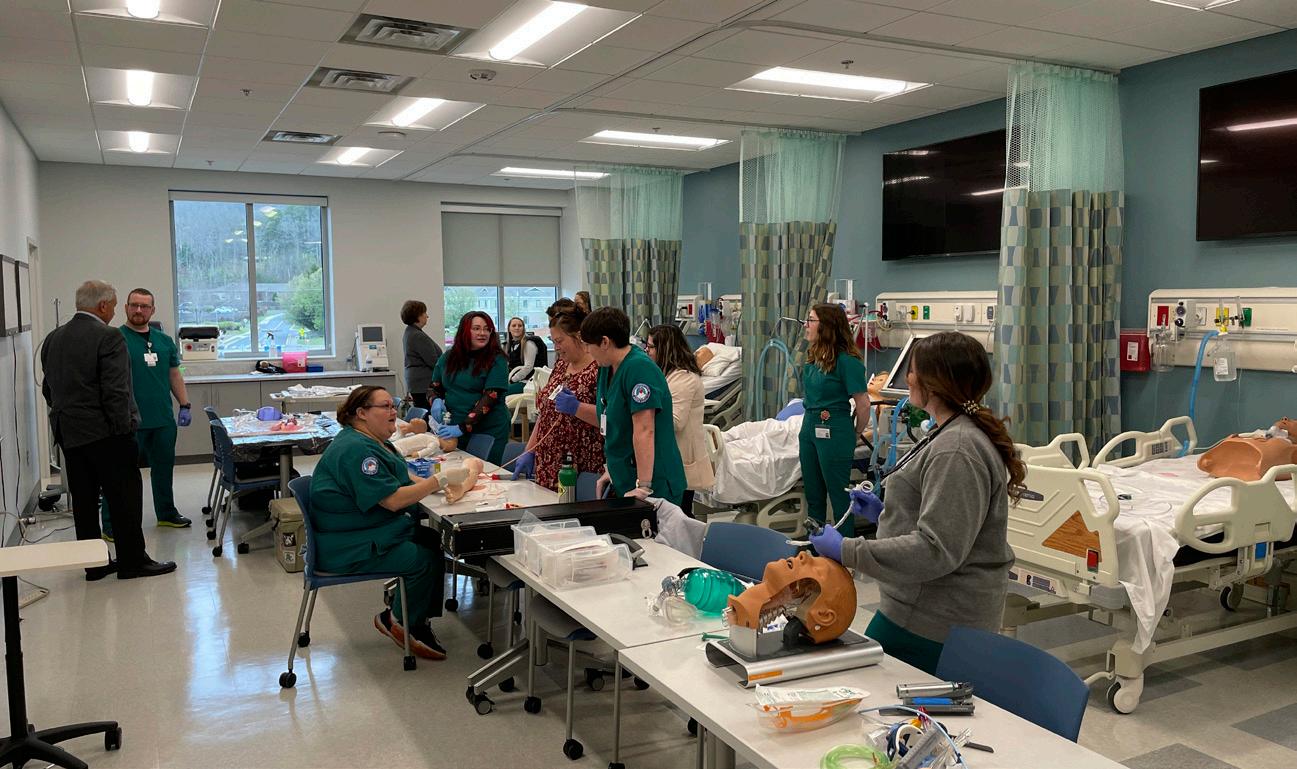
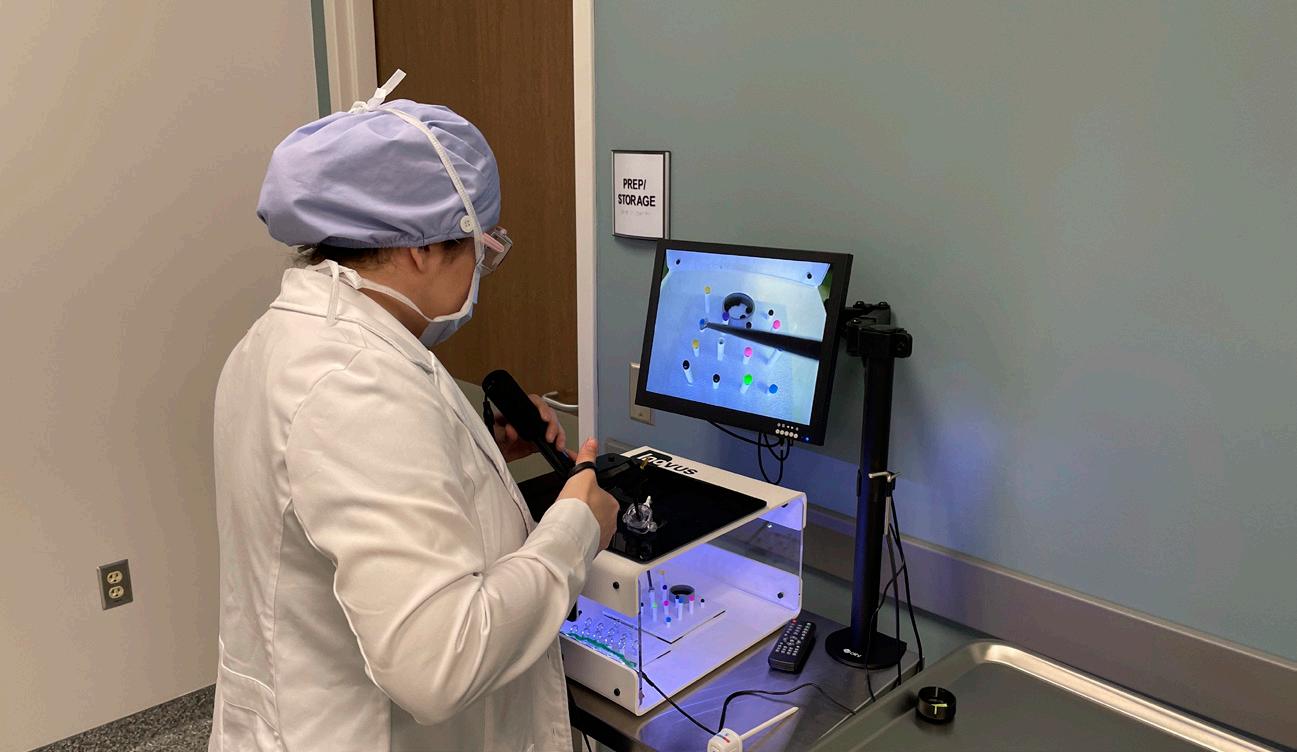
PROGRAMS SERVED
Hand Therapy
Occupational Therapy
Physical Therapy
Radiography
Respiratory Therapy
Surgical Technology
Ultra Sonography
UNIQUE FEATURES
Anatomage Lab
EMS Simulator
Exam Simulation Room
Home Health Simulation Lab
Nursing Skills Lab
Medical Technology Lab
Patient Care Simulation Room
Sterile Process Lab
Surgical Lab
Teaching Lab





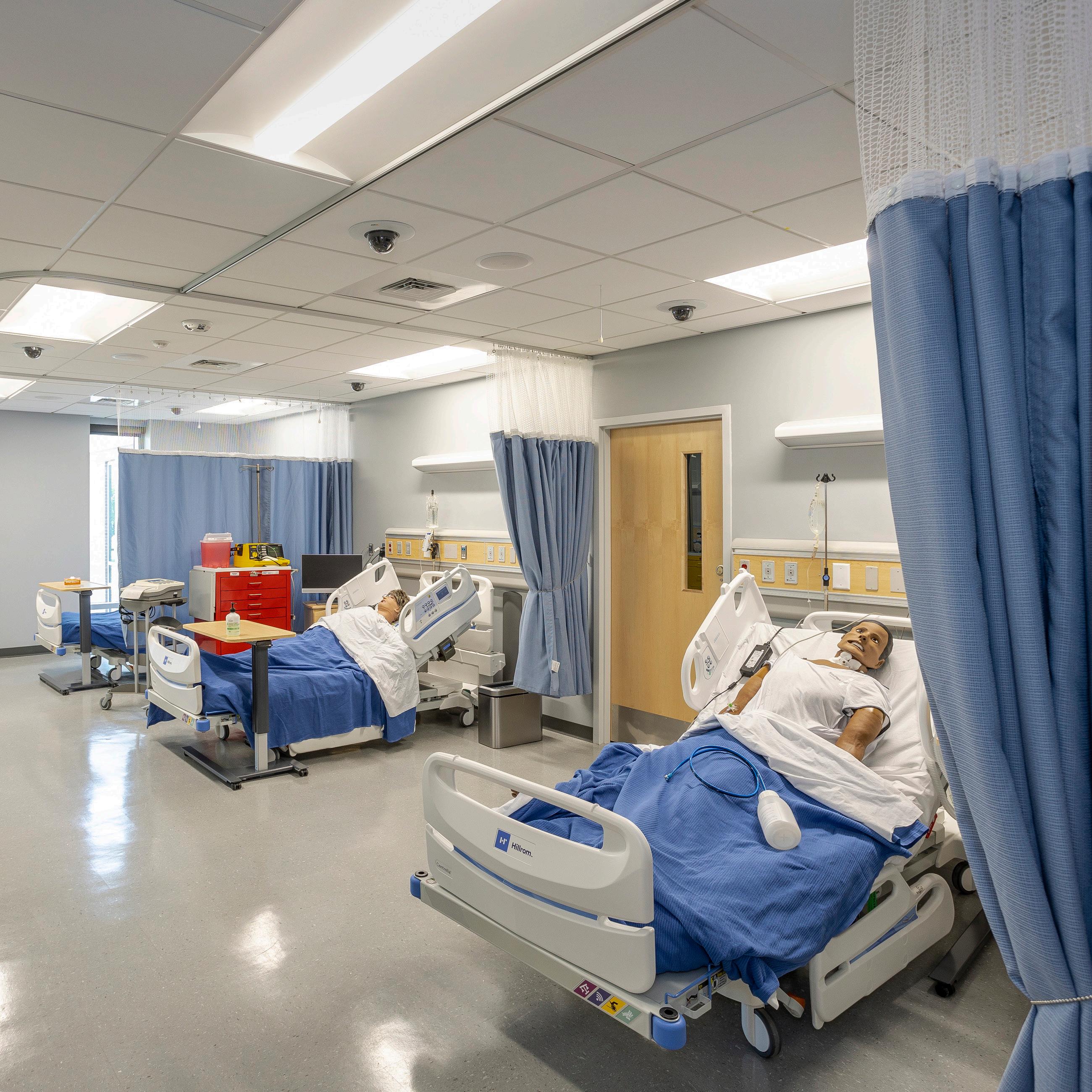
LENOIR COMMUNITY COLLEGE
KINSTON, NC | 31,000 GSF | RENOVATION
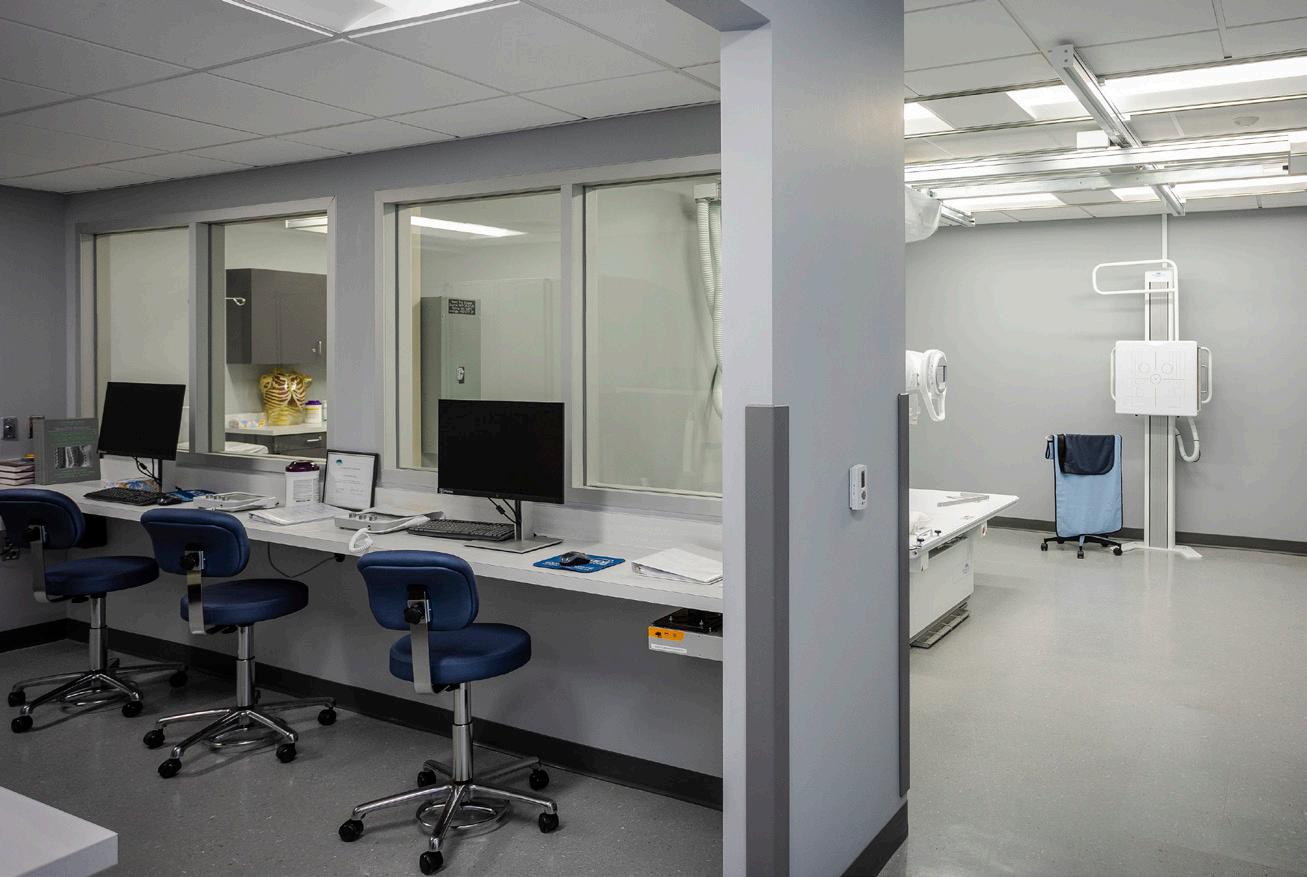
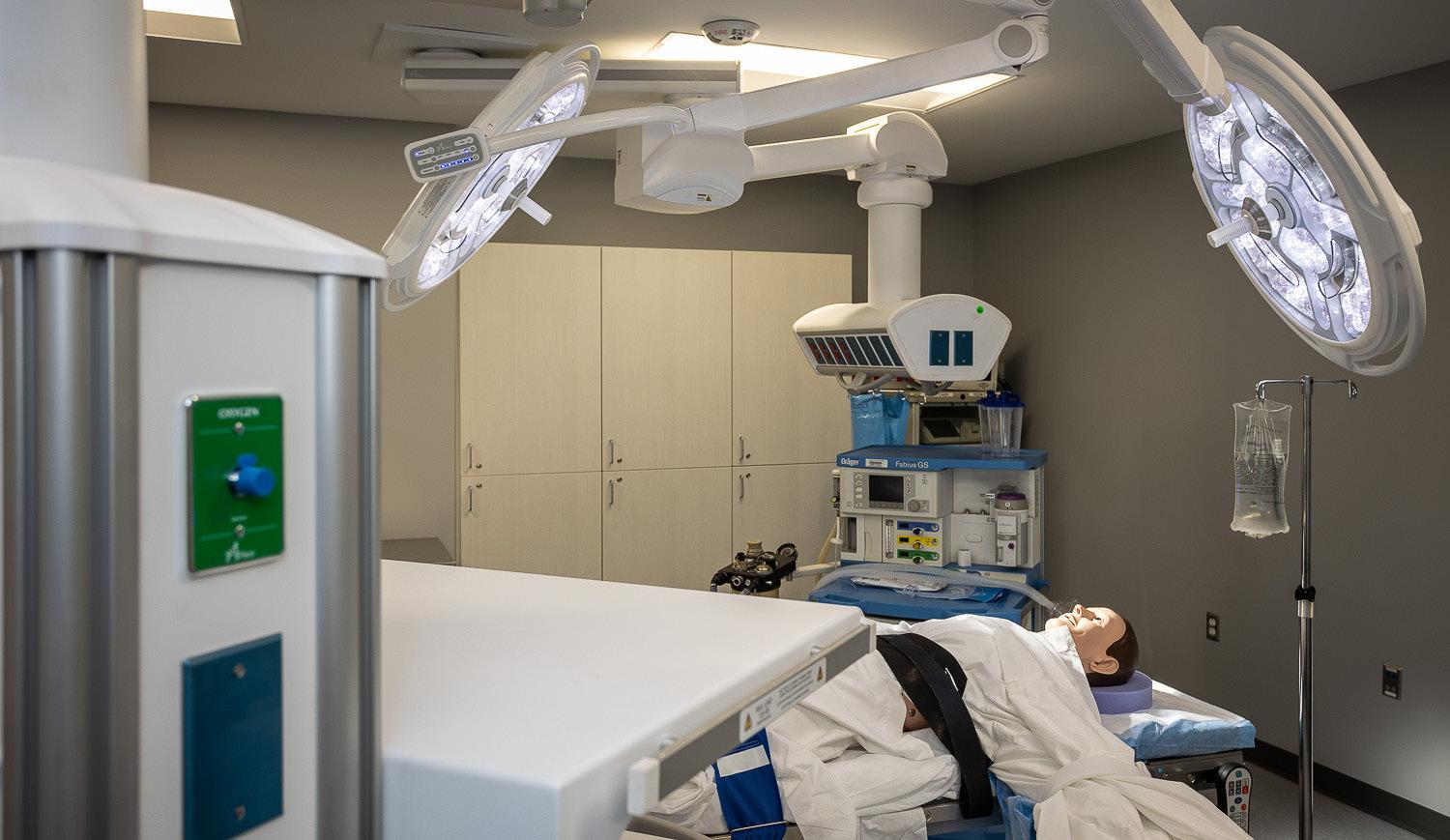
PROGRAMS SERVED
Neurotech
Nursing
Medical Assisting
Polysomnography
Radiography
Surgical Tech
Polysomnography
UNIQUE FEATURES
Certifield Nursing Aid Lab
Computer Testing Room
High Exam Simulation Room
Fidelity Simulation Suite
Mock Operating Room
Nursing Skills Lab
Patient Care Simulation Room
Surgical Lab




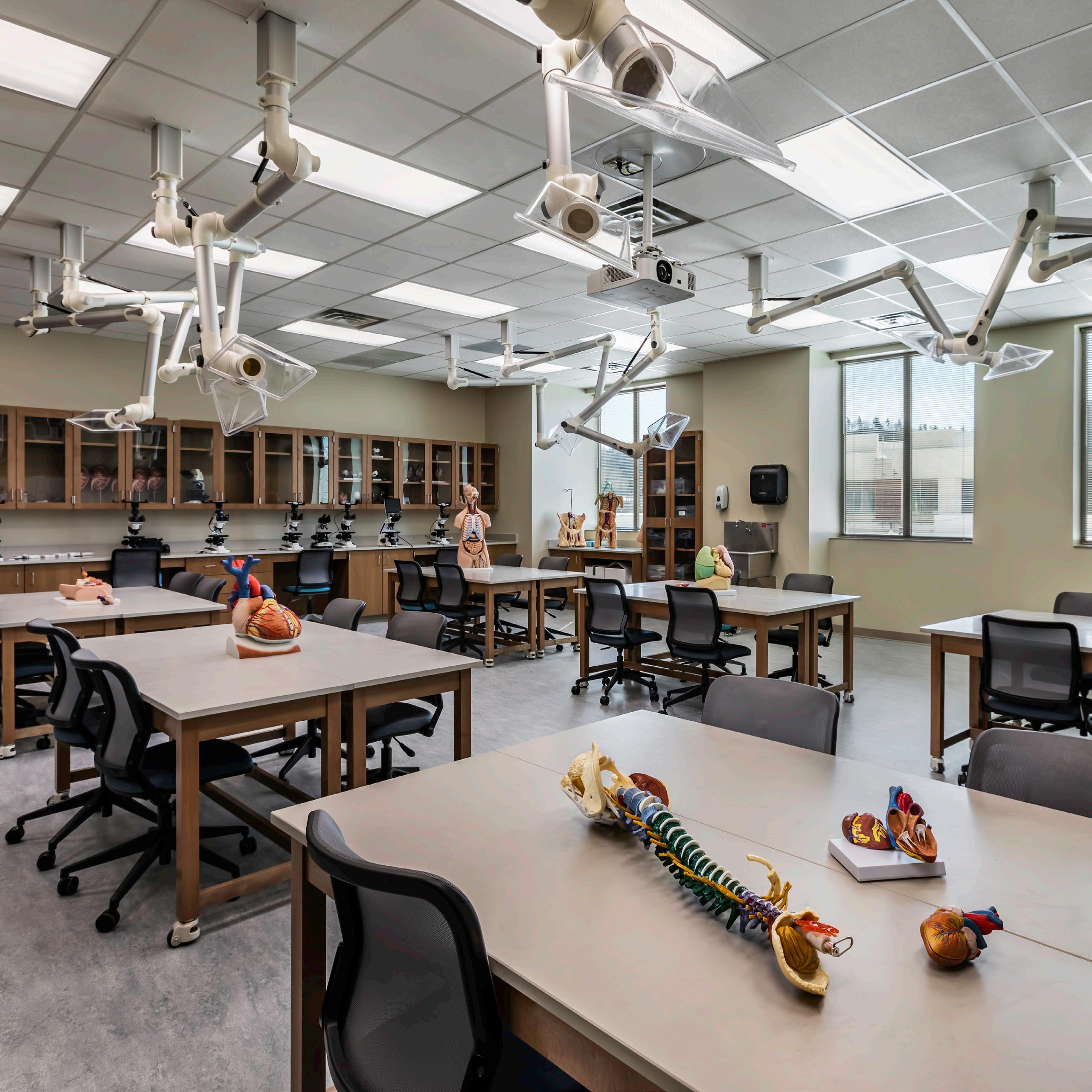
LS3P has completed over 50 health science projects.
Asheville-Buncombe Technical College Asheville, NC
• Ferguson Center for Allied Health & Workforce Development
Appalachian State University Boone, NC
• Leon Levine Hall Health Sciences Complex
Cape Fear Community College Wilmington, NC
• Union Station Building
Central Carolina Technical College Sumter, SC
• Health Sciences Building Renovation
Charleston Southern University Charleston, SC
• Health Sciences Building
Francis Marion University Florence, SC
• Department of Nursing
Isothermal Community College Spindale and Columbus, NC
• Allied Health & Sciences Building
Lenoir Community College Kinston, NC
• Health Science Building
Medical University of South Carolina
Charleston, SC
• College of Dental Medicine
Midlands Technical College Columbia, SC
• Nursing SIM Lab Renovation
Orangeburg-Calhoun Technical College
Orangeburg, SC
• Health Science & Nursing Building
Piedmont Technical College Newberry, SC
• Newberry County Center
Robeson Community College Lumberton, NC
• Allied Health Building
Sandhills Community College Pinehurst, NC
• New Foundation Hall / Kennedy Hall Renovation
Southwestern Community College Sylva, NC
• Health Science Center
• Nursing Simulation Lab Renovation
Trident Technical College North Charleston, SC
• Health Science & Nursing Building
UNC Greensboro Greensboro, NC
• Nursing & Instructional Building
University of South Carolina Columbia, SC
• Lexington Medical Center College of Nursing
Wake Tech Community College Raleigh, NC
• Health Sciences Building H
Western Carolina University Asheville, NC
• Center for Health & Aging MAHEC Building I
• MAHEC Building 4
Wilkes Community College Wilkesboro, NC
• Herring Hall Health Sciences
A blended team that combines expertise in both educational and healthcare design, providing exceptional services in both fields.
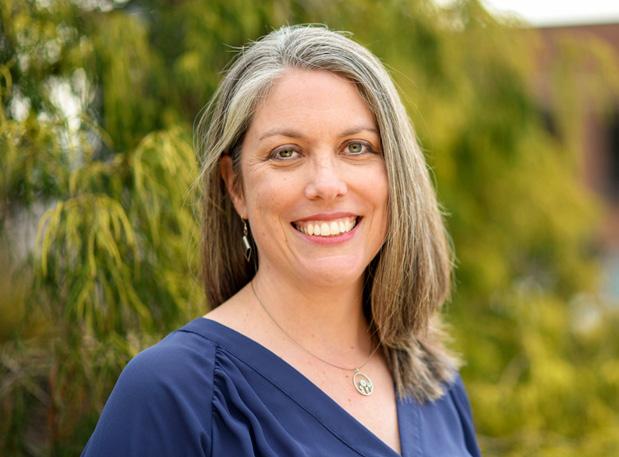
AIA, LEED AP BD+C
Higher Ed Practice Leader

AIA, LEED AP
Raleigh Higher Ed Sector Leader
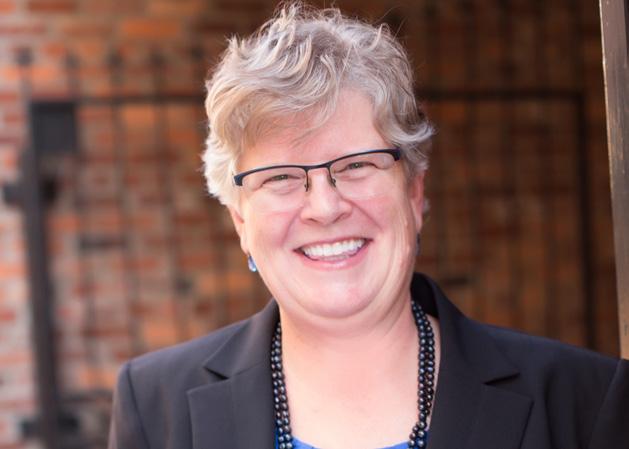
AIA, LEED AP BD+C Director of Medical Planning
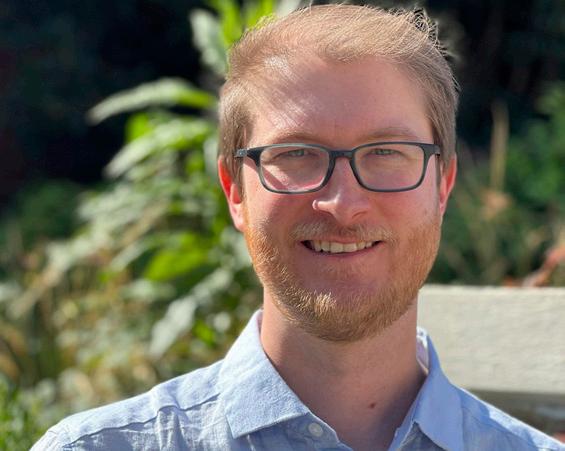
KYLE KISER
AIA
Greenville Higher Ed Sector Leader



We are proud to have designed and delivered projects for over 120 higher education clients across the Southeast, including over 50 community colleges in North Carolina, South Carolina Georgia, and Florida.
Established in 1963, LS3P is a multidisciplinary firm offering architecture, interiors, and planning services to a wide variety of clients nationwide. Central to all regions of the Southeast with offices in Charleston, Columbia, Greenville, Myrtle Beach, Asheville, Charlotte, Greensboro, Raleigh, Wilmington, Atlanta, Savannah, and Jacksonville, LS3P is committed to bringing state-of-the-art design, technology, and expertise of a strong regional firm closer to our clients on a local level. With a staff of over 480 employees, we have the resources to offer total design capabilities from site selection to occupancy, yet we are small enough to give personal attention to each client.
We are well-versed in the challenges which are particular to campus design including
working with academic calendars, navigating funding mechanisms, and designing for both immediate needs and long-term flexibility.
The editor of DesignIntelligence has called LS3P “the most local of the global firms and the most ‘world-class’ of the locals.” LS3P brings a history of over 60 years of design excellence, with over 650 design awards across diverse practice areas. With a mission to “engage, design, and transform,” we are deeply committed to the communities we serve. We believe in collaboration, innovation, and building lasting relationships with our clients. With an extensive portfolio of Higher Education projects, LS3P provides campus design solutions which meet today’s needs with flexibility for the future.
